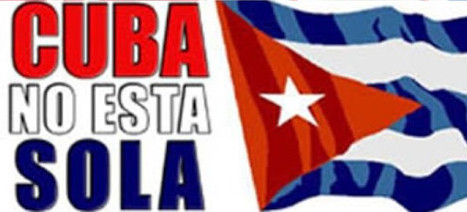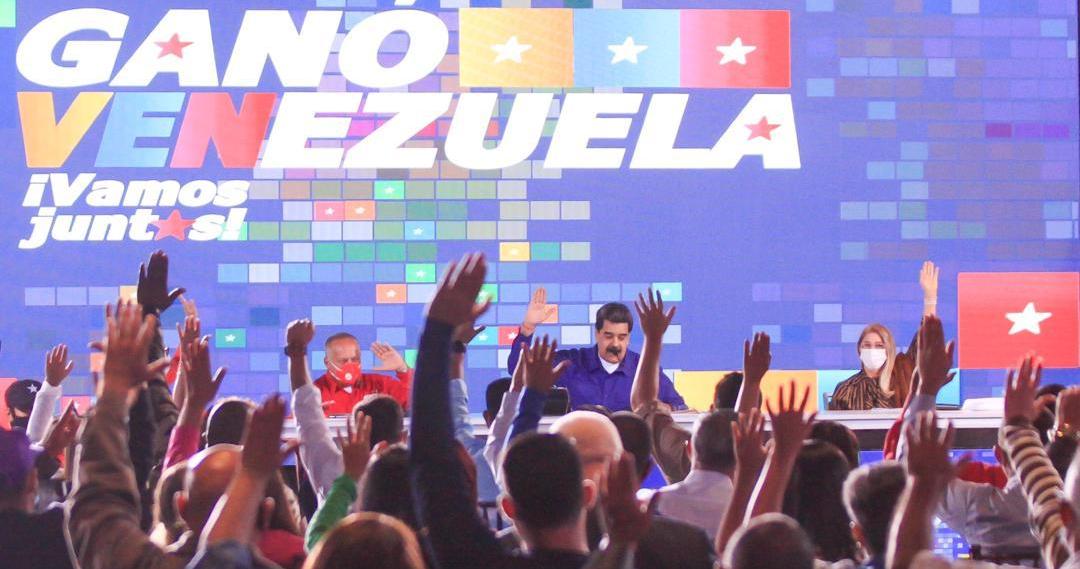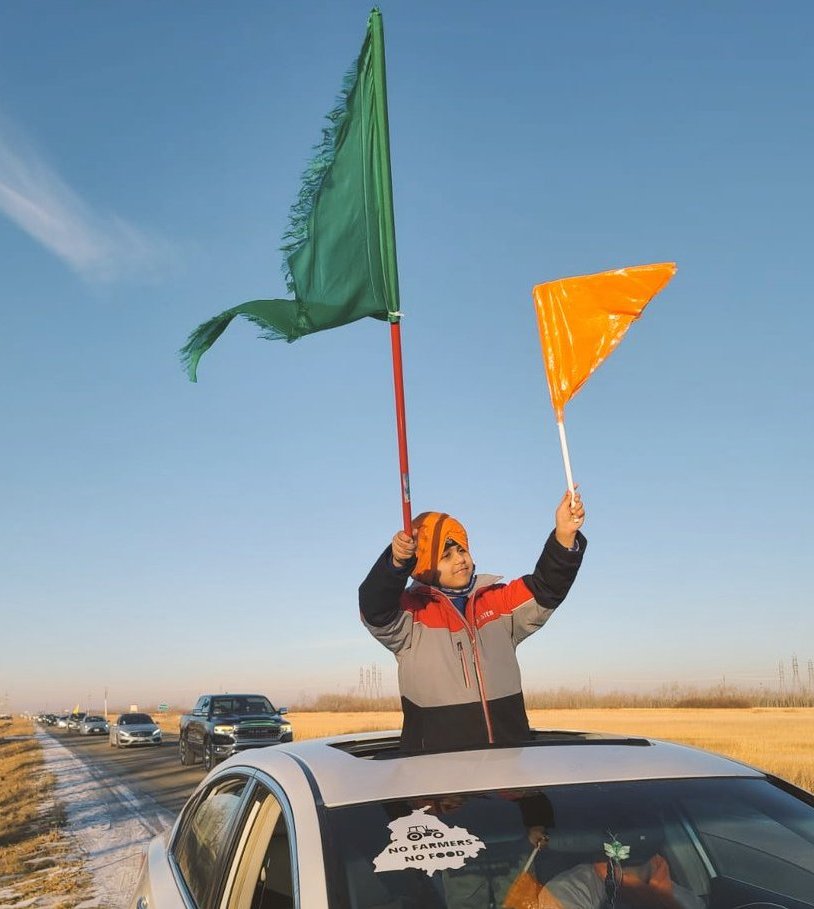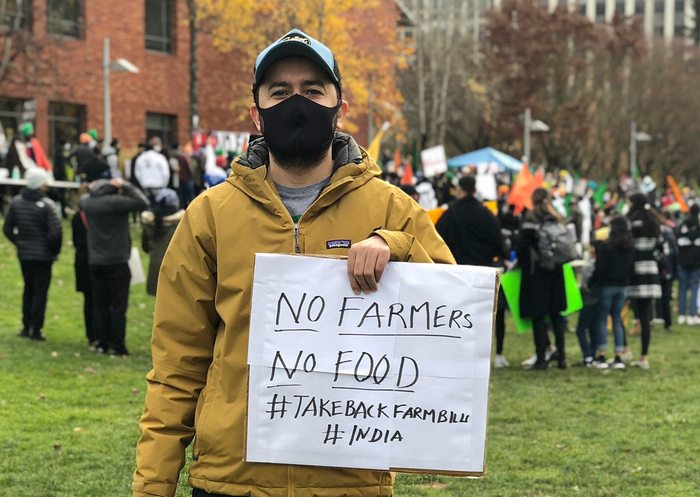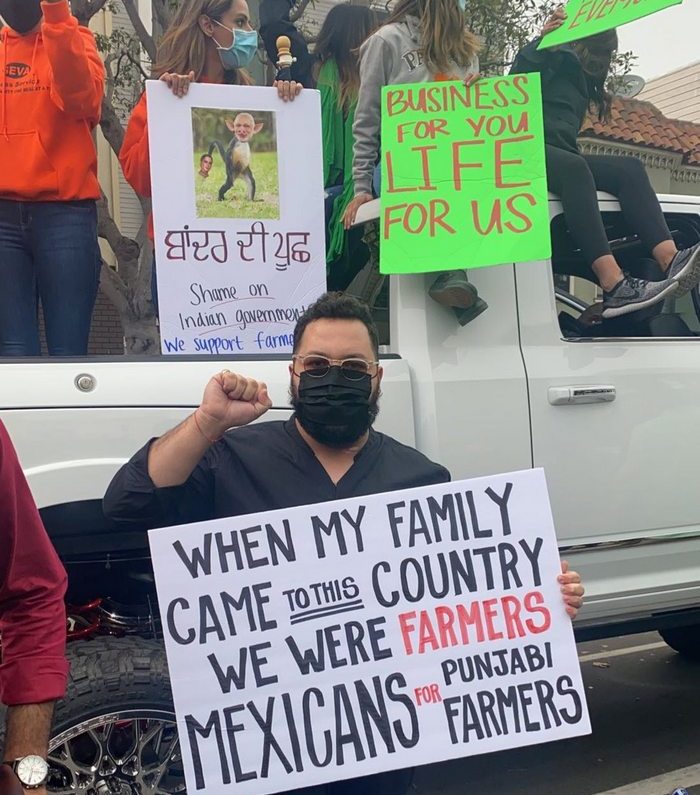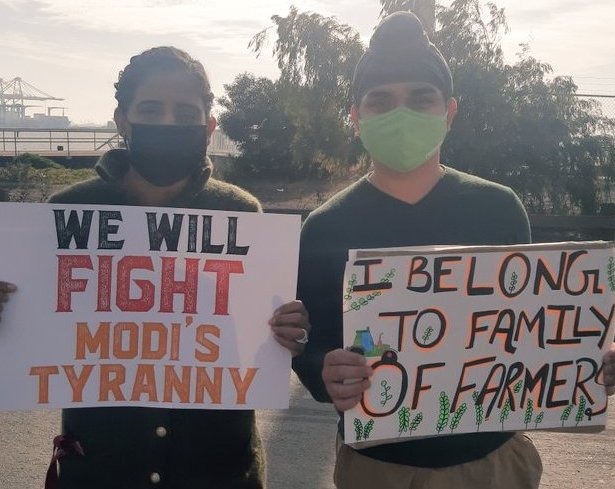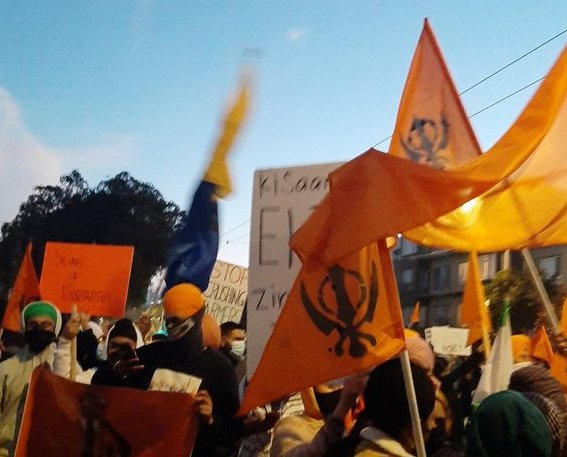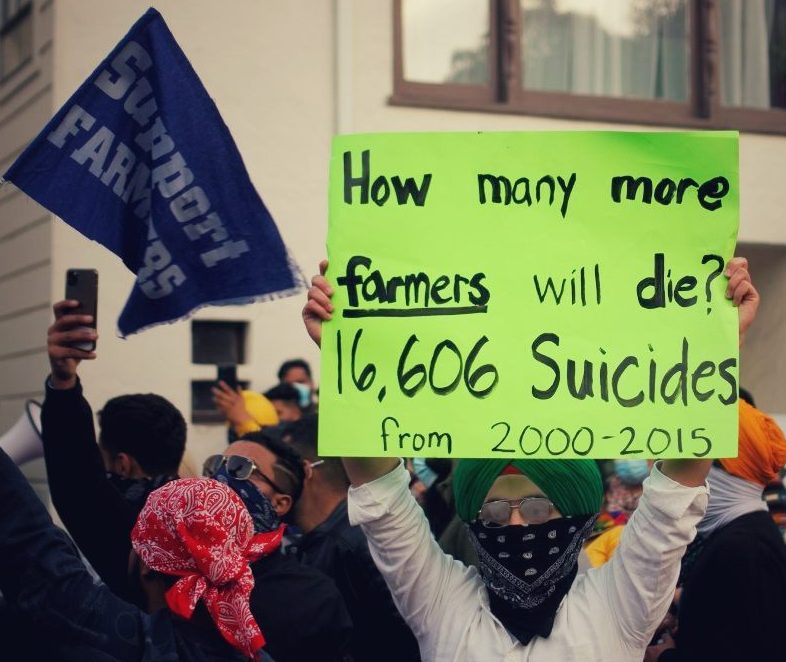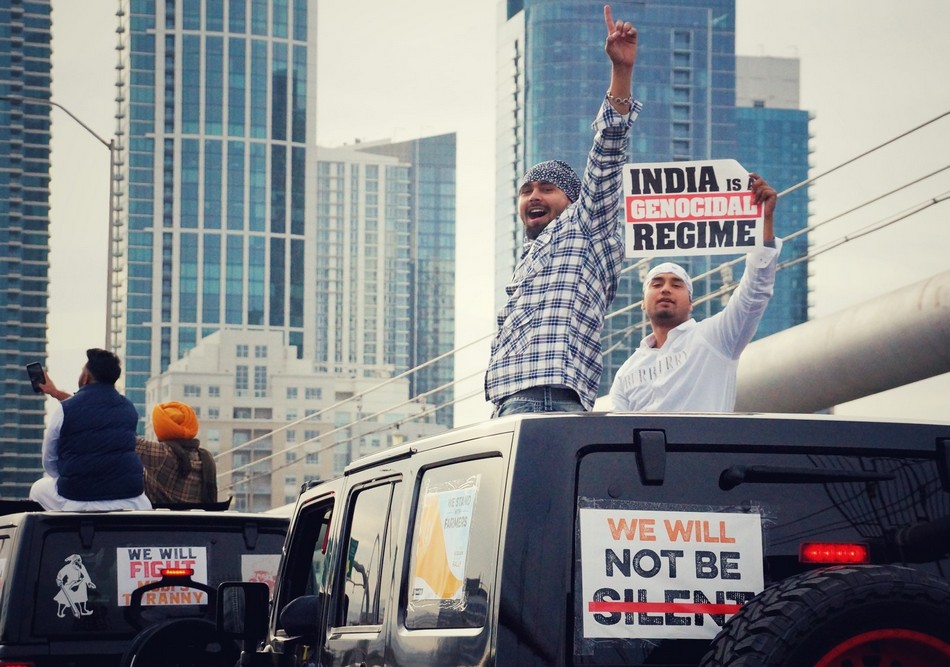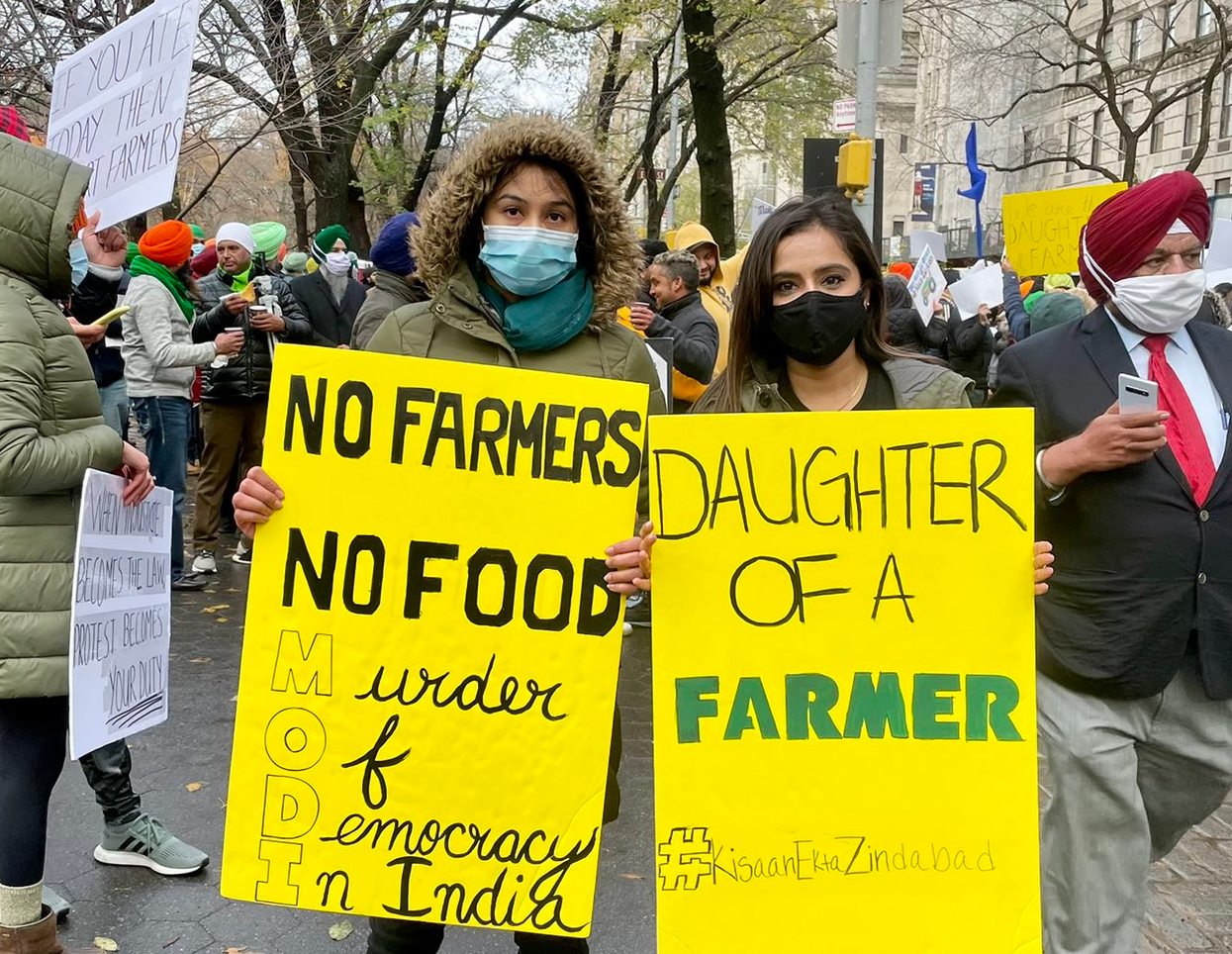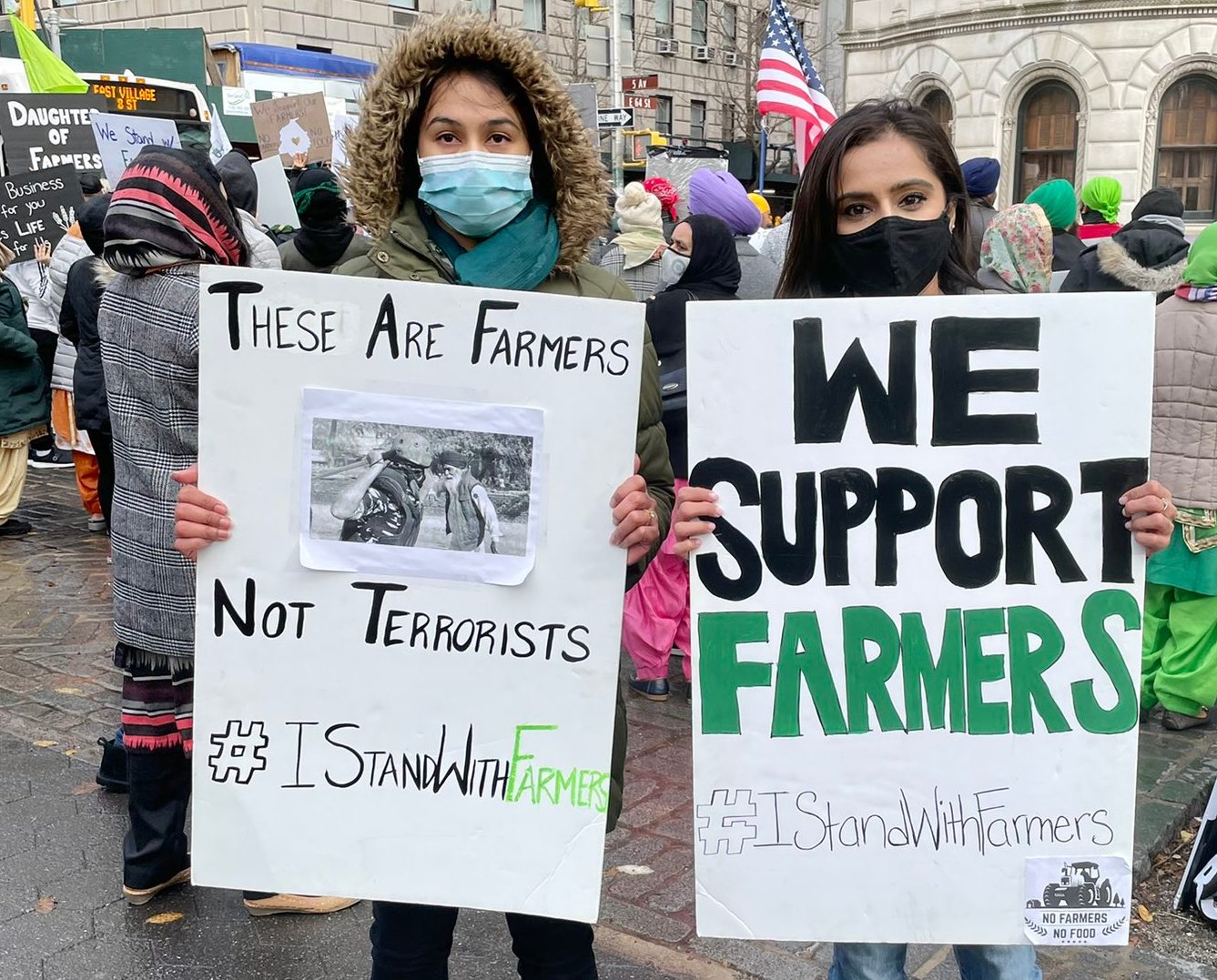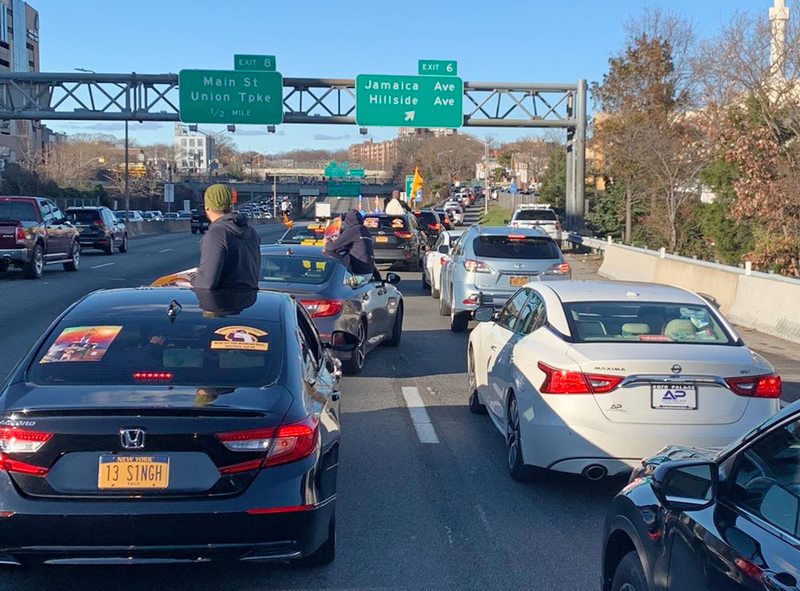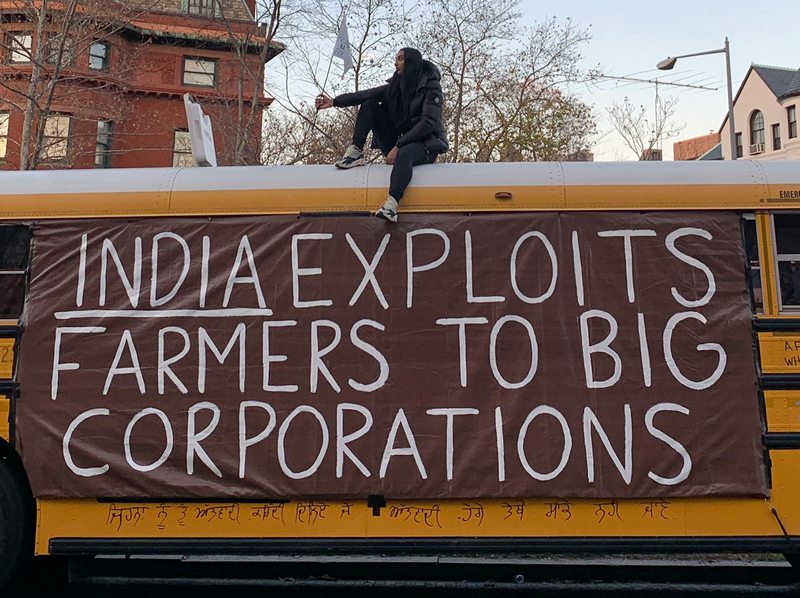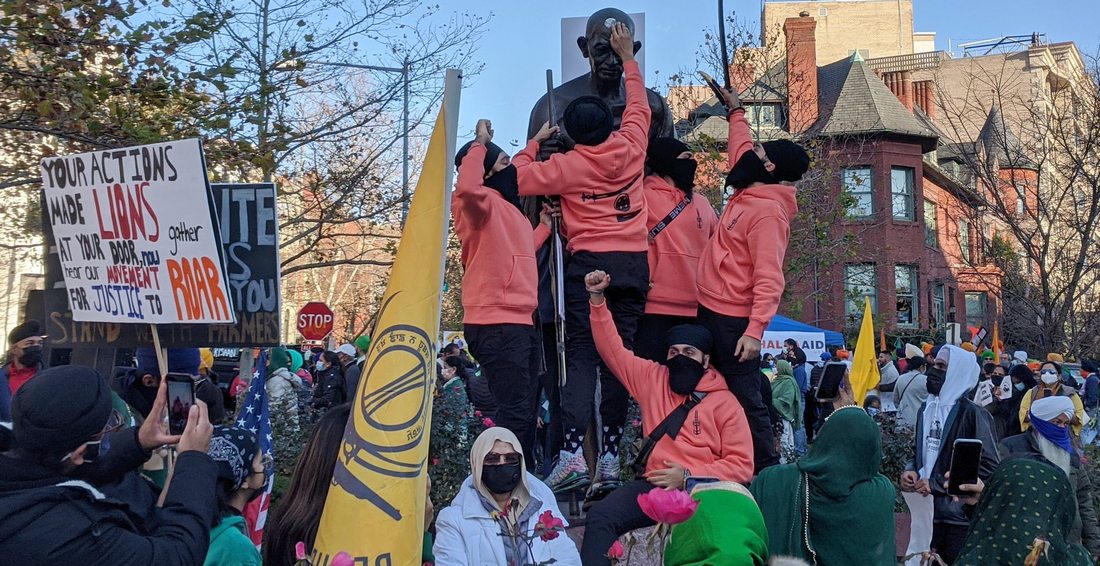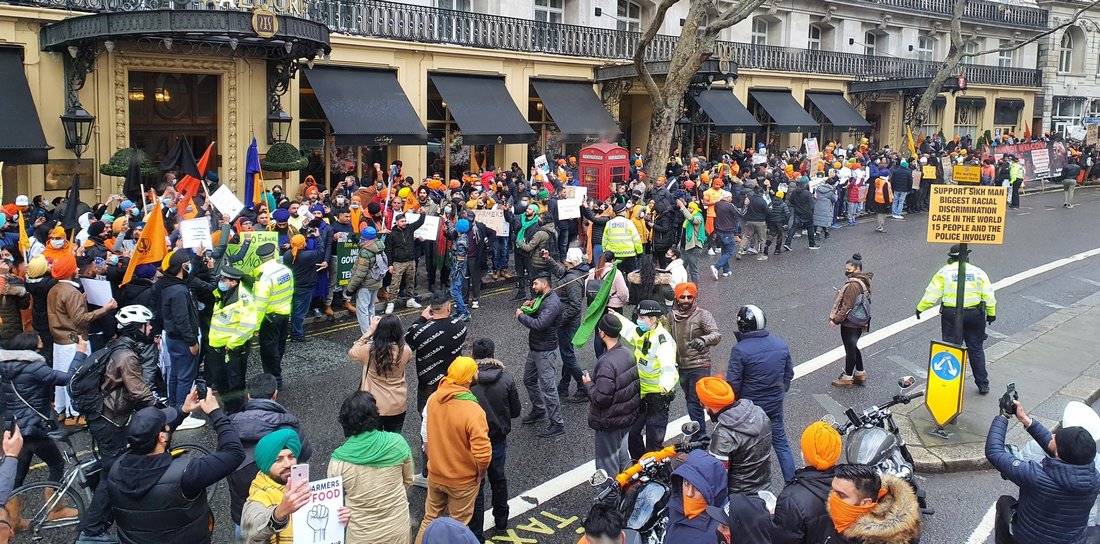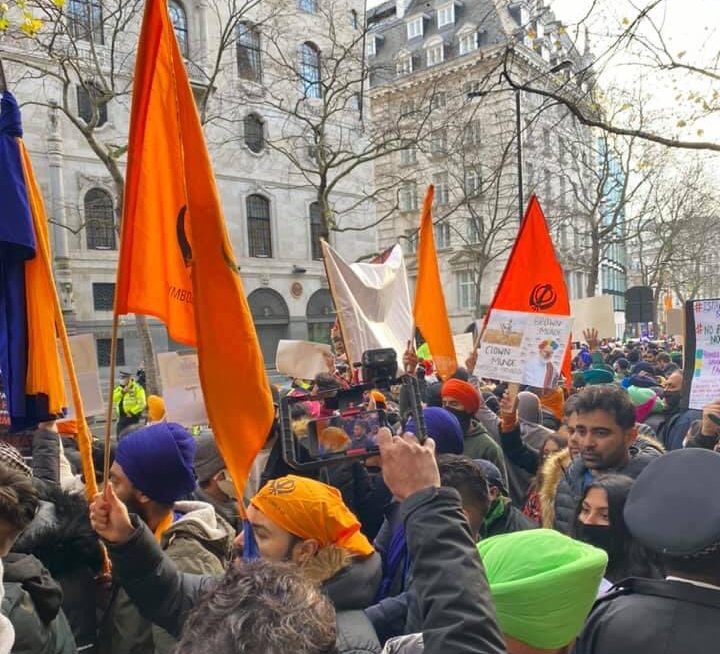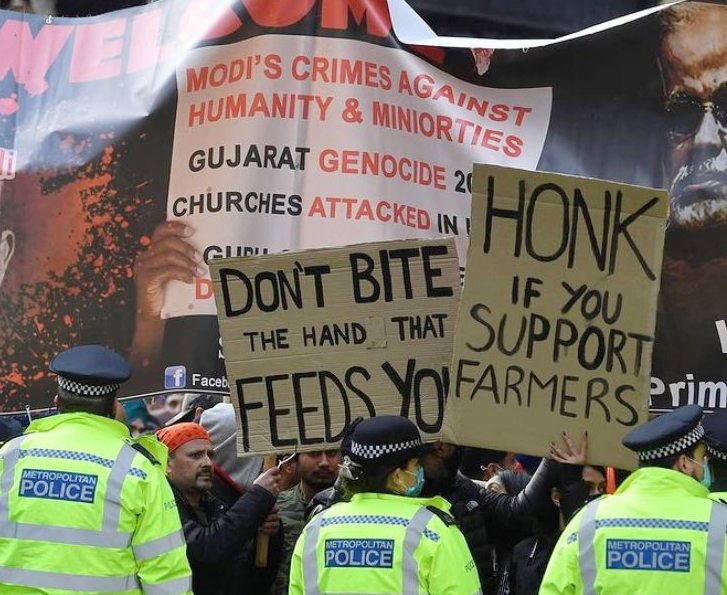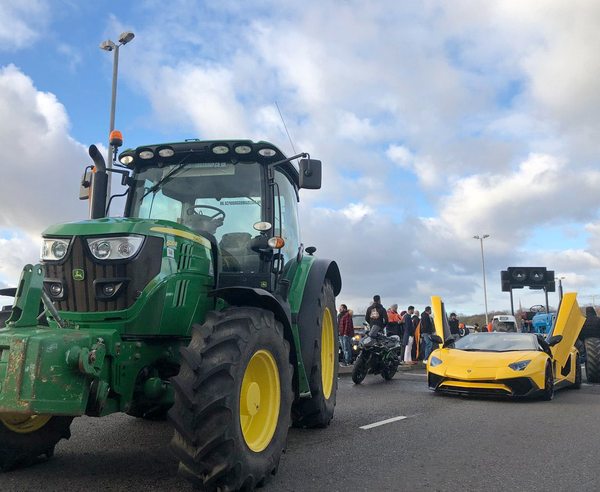
| December 12, 2020 - No. 48 In the
Parliament "Free
and Fair Elections" Are Meaningless Without an Informed Vote: |
|
|
Bill C-15
Government
Attempt to Subvert Indigenous
Right to Sovereignty
On December 3, the Liberal government tabled Bill C-15, An Act respecting the United Nations Declaration on the Rights of Indigenous Peoples (UNDRIP) in Parliament. In introducing the bill, federal Minister of Justice David Lametti stated: "Working with First Nations, Inuit and Métis peoples to implement the declaration and create a framework to achieve its objectives is a statement that the Government of Canada values, respects and promotes the human rights of all, and not just some [...] The legislation is a significant step forward on the shared path to reconciliation for Indigenous and non-Indigenous peoples alike."
In light of the evidence, no one can be fooled by the Trudeau government's shameless claim that Bill C-15 will advance the rights of Indigenous peoples and promote reconciliation.
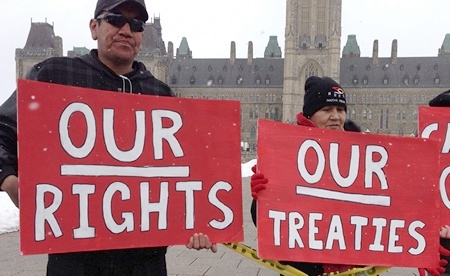 Bill C-15 brings
to mind the BC government's Bill 41, the Declaration on the
Rights of Indigenous Peoples Act passed in November 2019. It
has done nothing to uphold the rights of Indigenous peoples in BC even
though the Horgan government claimed the same thing -- that Bill 41
"will move the province forward with a clear action plan for
reconciliation, supporting predictability and economic opportunities,
while respecting Indigenous human rights."
Bill C-15 brings
to mind the BC government's Bill 41, the Declaration on the
Rights of Indigenous Peoples Act passed in November 2019. It
has done nothing to uphold the rights of Indigenous peoples in BC even
though the Horgan government claimed the same thing -- that Bill 41
"will move the province forward with a clear action plan for
reconciliation, supporting predictability and economic opportunities,
while respecting Indigenous human rights."
Far from it, when governments in Canada speak about upholding the human rights of Indigenous peoples they do not mean providing the right to housing, water, health care and education with guarantees. Even the basic human and Treaty right to potable water has been denied to many Indigenous communities living in remote areas, including in Neskantaga First Nation which has been under a "boil-water advisory" for close to three decades. The Trudeau Liberals mean that Indigenous lands will continue to be stolen out from under them such as the BC government is doing by pushing through the Site C Dam in Treaty 8 territory, or the state attacks carried out in the interests of private monopoly and economic mega projects against the Wet'suwet'en people defending their hereditary rights, or in Six Nations Territory for development purposes.
Since coming to power in 2015, the Trudeau Liberals have shown in deeds that monopoly right trumps Indigenous rights when it comes to Crown-Indigenous relations. During a webinar on December 9 held by the Yellowhead Institute, one of the main points made by the speakers on Bill C-15 is that the Canadian state at all levels is criminalizing and targeting Indigenous peoples by presenting them as threats to Canadian economic development and prosperity and using the courts to impose injunctions and calling in paramilitary forces when Indigenous peoples stand up for their sovereignty and right to be.
As for defending the rights of Indigenous peoples, the Trudeau Liberals have continued to terrorize and criminalize Indigenous land defenders from coast to coast when they stand up for their rights, and have continued the surveillance of Indigenous political activities under the RCMP's Project SITKA.[1]
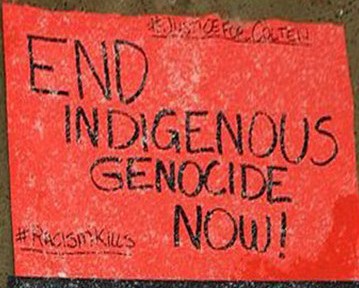 Like their
predecessors the Harper Conservatives, the Liberals continue
underfunding social programs for Indigenous families and children which
has impoverished and destabilized communities leading to more
Indigenous children being placed in state institutions.
Like their
predecessors the Harper Conservatives, the Liberals continue
underfunding social programs for Indigenous families and children which
has impoverished and destabilized communities leading to more
Indigenous children being placed in state institutions.
In June 2019, Trudeau acknowledged that the crimes against missing and murdered Indigenous women and girls constituted "genocide" but his government has done little to address this national crisis. Under Trudeau's "feminist" administration in Ottawa, Indigenous women remain the fastest-growing prison population in Canada. How can these facts be reconciled with the Liberal's claim of Bill C-15 advancing the rights of Indigenous peoples and representing a step towards reconciliation?
The Liberals typically speak about rights as abstractions, devoid of meaning or any link with reality on the ground. These abstractions are a provocation against the Indigenous peoples and Canadians and Quebeckers as well who they seem to think do not see what they are up to and, if they do, cannot hold them to account.
What goes around comes around and the crimes that the Canadian state has committed and continues to commit against Indigenous peoples today will not go unpunished. Bill C-15 is being pushed through Parliament at a time when Crown-Indigenous relations are at an all-time low because Canada has not upheld its obligations to Indigenous peoples, especially when it comes to respecting their sovereignty. The Trudeau government is carrying on the racist policy of the state, deciding what is good and what is bad for Indigenous peoples. It controls their money -- owed to them for the theft of the lands and resources they depend on for their living.
Underneath the sweet words of reconciliation lies the sinister aim of further undermining the sovereignty of Indigenous peoples and subverting the ever-growing political unity and solidarity of the peoples of Canada and Quebec with Indigenous peoples. Canada may hope to appear to comply with the demands of the United Nations that it respect Indigenous rights and clean up its sorry reputation as a colonial power, but facts are facts. This kind of window-dressing has been tried many times in the past and the waste of money in more PR campaigns is despicable. Government actions, including the introduction of Bill C-15, cannot cover up the colonial outlook which blocks the fulfillment of the aspirations of the people who comprise Canada for a new and modern relationship with Indigenous peoples based on the recognition of their sovereignty and hereditary rights.
The title of the
December 9 webinar hosted by the Yellowhead Institute and other
organizations was "The Ransom Economy -- What Shutdown Canada Reveals
about Land Rights." It featured land-defenders from the Secwepemc,
Wet'suwet'en, Mohawk and Mi'kmaw nations. Spokesperson for the
Wet'suwet'en Molly Wickham noted that the Trudeau government's new law
on UNDRIP is "insurance for investors, its all a smokescreen to say we
are playing nice ... we're giving them [Indigenous peoples] a say ...
Governments are asking as well how are they going to implement UNDRIP?
Well, it is not up to them. It is up to us as Indigenous peoples ... we
decide how UNDRIP is going to be implemented. UNDRIP is going to be
implemented under our laws."
Skyler Williams, speaking as a Mohawk land defender, observed that the stands the land defenders have taken in defence of their sovereignty across Turtle Island have been met with state violence, but have strengthened the resolve of Indigenous peoples to assert their sovereignty with the support of their allies across Turtle Island. This is a fitting response to Bill C-15.
Bill C-15 is a desperate attempt by the Trudeau Liberals to shore up their credibility and lack of legitimacy when it comes to Crown-Indigenous relations.
No to Bill C-15!
Uphold the
Hereditary and Treaty Rights of Indigenous Peoples!
Respect
the Sovereignty of Indigenous Nations!
Note
1. Internal RCMP emails, memos, reports and documents acquired by CBC News revealed the RCMP's "Project SITKA." The RCMP wanted to identify specific activists who had been arrested, arrested and charged and convicted, create profiles and links to organizations across the country. After probing more than 300 activists, the RCMP came up with a list of 89 -- Indigenous and non-Indigenous -- at the end of the intelligence project, the CBC reported. According to the RCMP, these people were "willing and capable of utilizing unlawful tactics" during Indigenous rights protests in December 2012 to the end of 2013. The project was allegedly wound up in March 2015. However, days before Justin Trudeau announced the initial approval for the Trans Mountain pipeline, the RCMP reactivated the so-called dormant list of Indigenous rights activists it deemed potential "criminal threats." (APTN)
(With files from Government of Canada, BC government, Globe and Mail, Yellowhead Institute, Policy Options, APTN. Photos: TML, J. Stayshyn)
United Nations Declaration on
the
Rights of Indigenous Peoples Act
Minister of Justice and Attorney General of Canada David Lametti tabled Bill C-15, the United Nations Declaration on the Rights of Indigenous Peoples Act in the House of Commons on December 3. The stated purpose of this law is to affirm the United Nations Declaration on the Rights of Indigenous Peoples (UNDRIP) as a "universal, international, human rights instrument with application in Canadian law and provide a framework for the Government of Canada's implementation of the Declaration."[1]
Bill C-15 is divided into seven sections. If passed, it "would require the Government of Canada, in consultation and cooperation with Indigenous peoples to: take all measures necessary to ensure that the laws of Canada are consistent with the Declaration; prepare and implement an action plan to achieve the Declaration's objectives; table an annual report on progress to align the laws of Canada and on the action plan."
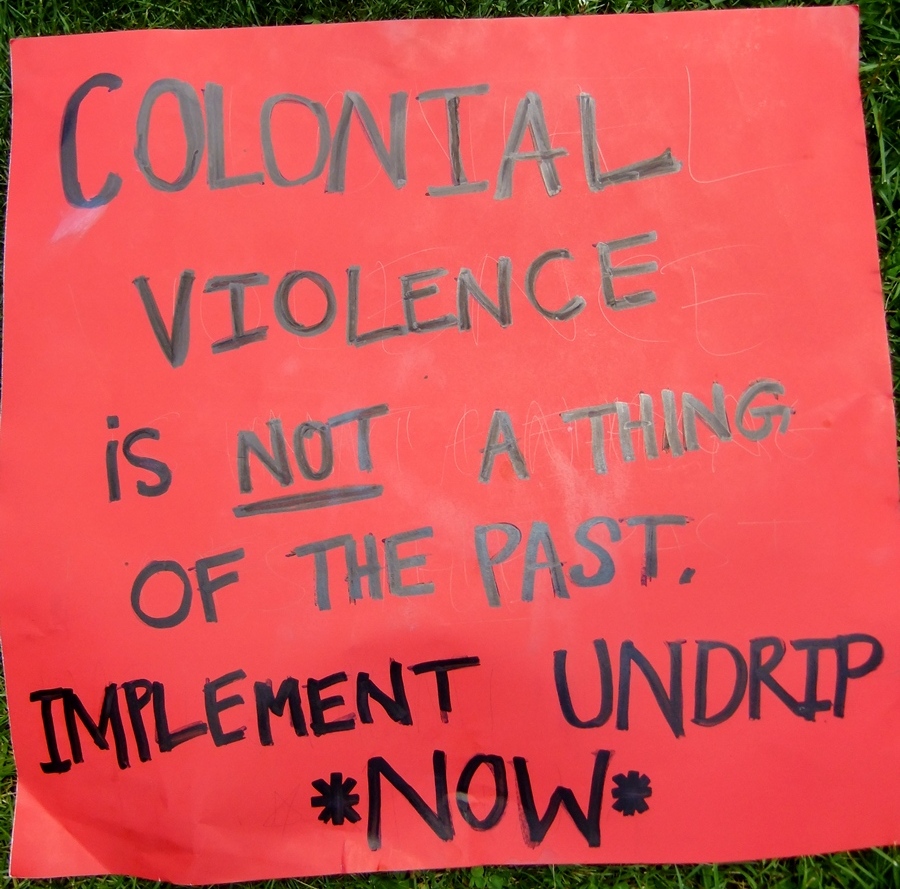 The action plan
must include measures "to address injustices, combat prejudice and
eliminate all forms of violence and discrimination, including systemic
discrimination, against Indigenous peoples and Indigenous elders,
youth, children, women, men, persons with disabilities and
gender-diverse persons and two-spirit persons; to promote mutual
respect and understanding as well as good relations, including through
human rights education; [and measures] related to monitoring,
oversight, recourse or remedy or other accountability measures with
respect to the implementation of the Declaration."
The action plan
must include measures "to address injustices, combat prejudice and
eliminate all forms of violence and discrimination, including systemic
discrimination, against Indigenous peoples and Indigenous elders,
youth, children, women, men, persons with disabilities and
gender-diverse persons and two-spirit persons; to promote mutual
respect and understanding as well as good relations, including through
human rights education; [and measures] related to monitoring,
oversight, recourse or remedy or other accountability measures with
respect to the implementation of the Declaration."
In terms of a timeline, the law states, "The preparation of the action plan must be completed as soon as practicable, but no later than three years after the day on which this section comes into force."
The background notes provided by the government on December 3 point out, among other things: "The Government of Canada has already taken action to reflect the Declaration in legislation, including An Act respecting First Nations, Inuit and Métis children, youth and families and the Indigenous Languages Act and Bill C-15 represents another step forward."[2]
Article 32 of the UNDRIP states that: "States shall consult and cooperate in good faith with the Indigenous peoples concerned through their own representative institutions in order to obtain their free and informed consent prior to the approval of any project affecting their lands or territories and other resources, particularly in connection with the development, utilization or exploitation of mineral, water or other resources." On this key principle, the government of Canada states: "References to 'free, prior and informed consent' are found throughout the Declaration. They emphasize the importance of recognizing and upholding the rights of Indigenous peoples and ensuring that there is effective and meaningful participation of Indigenous peoples in decisions that affect them, their communities and territories. Free, prior and informed consent is about working together in partnership and respect. [...] Despite what some have suggested, it is not about having a veto over government decision-making."
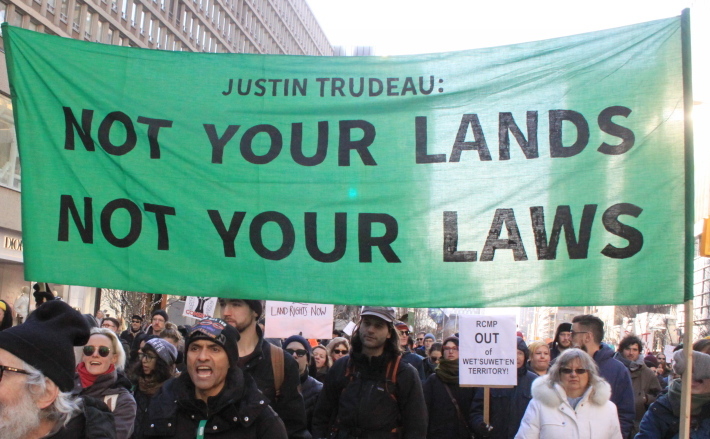 The issue of
interpretation of informed consent not constituting a veto is the
diversion the government uses in its attempt to cover up that its
relations with the Indigenous nations are those of a colonial power
which asserts its right to govern "the natives." It is pathetic.
The issue of
interpretation of informed consent not constituting a veto is the
diversion the government uses in its attempt to cover up that its
relations with the Indigenous nations are those of a colonial power
which asserts its right to govern "the natives." It is pathetic.
The Trudeau government's background notes also give the answer to what Bill C-15 means for natural resource development. The government points out that the government has a constitutional duty "to consult and accommodate Indigenous groups when it considers measures that might adversely impact potential or established Aboriginal or treaty rights, including resource projects. This Bill would not create new obligations or regulatory requirements for industry; rather, it would support the Government's implementation of its constitutional duty."
The government's background notes provide particular information on how Bill C-15 will impact the fishing industry. The government states: "The sustainable use of the fishery resource, the protection of fish and fish habitat, the conservation and management of our oceans, and through the Canadian Coast Guard, the safety of those on the water and the protection of the marine environment, are shared priorities held in common with Indigenous peoples in Canada and the Government of Canada. The Government of Canada works with Indigenous peoples through well-established processes to seek input in decision-making and management activities; for example, advisory councils, collaborative management arrangements, and bilateral discussions. Through these relationships, the Government of Canada collaborates with Indigenous peoples in a manner that gives voice to the Declaration."
And further: "The Fisheries Act and all licence conditions will remain in place. However, the development of the action plan would be a venue to advance discussions Indigenous peoples may wish to have on measures to achieve the objectives of the Declaration. The Government of Canada will work to ensure that there is a safe, orderly, and sustainable environment for all harvesters engaged in the fishery."
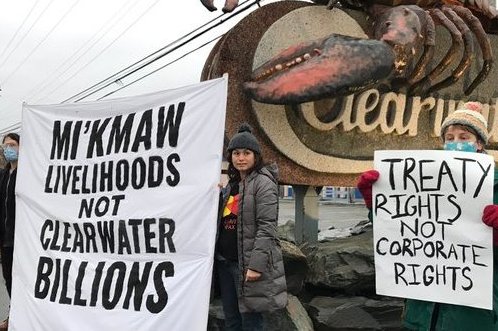 The above
paragraph speaks directly to the current struggle the Mi'kmaq are
waging against the Canadian state to affirm their hereditary and treaty
fishing rights. It is clear that Bill C-15 will be used to undermine
their struggle by the government holding veto on fishing licences and
regulations under the Fisheries Act. By sleight of
hand, the Liberals aim to undermine the struggle of the Mi'kmaq to
affirm their sovereign rights to fish and engage in a self-defined and
self-regulated "moderate livelihood" fishery, while covering up the
fact that it is the state that has created the conditions to split and
divide the small fishers including Indigenous fishers, encouraged
strife among them through the Department of Fisheries and Oceans,
subsidized the biggest fishing monopolies such as Clearwater Seafoods,
and sold out to foreign trawlers and factory fishing, causing grave
damage to Indigenous and small fishers as well. The government has
moved away from any obligations to uphold and respect the historic
Peace and Friendship Treaties signed by the Crown in 1760-61, through
which the Mi'kmaq affirmed their sovereignty and did not cede their
land, maritime or other rights. It is noteworthy that the Assembly of
Nova Scotia Mi'kmaw Chiefs has denounced the Trudeau government for
refusing to meet with them regarding fishing rights.
The above
paragraph speaks directly to the current struggle the Mi'kmaq are
waging against the Canadian state to affirm their hereditary and treaty
fishing rights. It is clear that Bill C-15 will be used to undermine
their struggle by the government holding veto on fishing licences and
regulations under the Fisheries Act. By sleight of
hand, the Liberals aim to undermine the struggle of the Mi'kmaq to
affirm their sovereign rights to fish and engage in a self-defined and
self-regulated "moderate livelihood" fishery, while covering up the
fact that it is the state that has created the conditions to split and
divide the small fishers including Indigenous fishers, encouraged
strife among them through the Department of Fisheries and Oceans,
subsidized the biggest fishing monopolies such as Clearwater Seafoods,
and sold out to foreign trawlers and factory fishing, causing grave
damage to Indigenous and small fishers as well. The government has
moved away from any obligations to uphold and respect the historic
Peace and Friendship Treaties signed by the Crown in 1760-61, through
which the Mi'kmaq affirmed their sovereignty and did not cede their
land, maritime or other rights. It is noteworthy that the Assembly of
Nova Scotia Mi'kmaw Chiefs has denounced the Trudeau government for
refusing to meet with them regarding fishing rights.
All in all, Bill C-15 is a perfidious document with a sinister aim. The government will be reminded by life itself that rights cannot be given or taken away or forfeited in any way, no matter who it consults and makes deals with. They cannot be extinguished so no piece of paper or bogus legal documents can achieve the miracle the Trudeau government thinks it can achieve when all others before it have failed. Further attempts to extinguish Indigenous sovereignty, inherent rights and title in the interests of "industry" are bound to fail.
Notes
1. The United Nations Declaration on the Rights of Indigenous Peoples (UNDRIP) is a non-binding statement adopted by the UN General Assembly in 2007. At the time, 144 countries voted in favour with four votes against (Australia, Canada, New Zealand and the United States), as well as 11 abstentions. According to the UN, the "Declaration is the most comprehensive international instrument on the rights of Indigenous peoples. It establishes a universal framework of minimum standards for the survival, dignity and well-being of the Indigenous peoples of the world and it elaborates on existing human rights standards and fundamental freedoms as they apply to the specific situation of Indigenous peoples."
In 2010, the Harper Conservative government endorsed UNDRIP, describing it as an "aspirational document," but took no action. The Trudeau Liberals, in their 2015 election platform, pledged to implement the UNDRIP and in May 2016 Canada officially announced that it was "fully adopting this and working to implement it within the laws of Canada, which is our Charter."
Two months later, then-Minister of Justice Jody Wilson-Raybould, speaking to the Assembly of First Nations General Assembly on July 12, said that "simplistic approaches, such as adopting the UNDRIP as being Canadian law are unworkable and, respectfully, a political distraction to undertaking the hard work required to actually implement it."
In 2018, NDP Member of Parliament Romeo Saganash introduced Bill C-262 as a private member's bill in the House of Commons. It called for UNDRIP to be integrated into Canadian law. But the bill ultimately died on the order paper in the Senate before the 2019 federal election.
2. Commenting on An Act respecting First Nations, Inuit and Métis children, youth and families, on July 7, 2020, Dr. Cindy Blackstock, Executive Director of the First Nations Child and Family Caring Society of Canada, noted that despite this legislation, underfunding and uncertainty regarding federal funding of Indigenous child and family services continues. She pointed out that the federal government had no problem finding funds for COVID-19 intervention but not for Indigenous children.
(With files from Government of Canada, Mi'kmaq Rights Initiative, UNDRIP. Photos: TML, Solidarity Kjipuktuk)
Current U.S. Attempts to Sow Chaos in Cuba
Oppose Imperialist Interference in Cuba and Violation of Diplomatic Norms
|
|
A campaign of interference in Cuba's internal affairs is being undertaken by U.S. diplomats, politicians and anti-Cuba terrorists in the U.S. This is being done by inciting Cuban youth to take up counterrevolutionary activities, in flagrant violation of the rules governing diplomatic relations.
On November 30, Cuban Foreign Minister Bruno Rodríguez, through his official Twitter account, denounced the direct participation of the U.S. Chargé d'Affaires in Havana, Timothy Zúñiga-Brown, in inciting and assisting in illegal acts against public order and health standards in the face of the COVID-19 pandemic. Similarly, Carlos Fernández de Cossío, the Director General in charge of the U.S. at the Cuban Ministry of Foreign Affairs (Minrex), pointed out "the serious violations of the functions as diplomat and head of mission" committed by Zúñiga-Brown.
 Fernández
explained that the U.S. diplomat went several times to the San Isidro
neighbourhood in Old Havana, where his embassy knew about the
development of a political and social provocation event, the so-called
San Isidro Movement. Zúñiga-Brown also undertook
"to personally transport and support those who were violating health
standards for protection against the pandemic" which Minrex called
"flagrant and defiant interference in the internal political affairs of
Cuba and indisputable violations of the Vienna Convention on Diplomatic
Relations." Cuba does not accept such behaviour, said
Fernández, and it will not tolerate contempt of the law and
regulations in violation of their obligations by the U.S. diplomat or
his embassy.
Fernández
explained that the U.S. diplomat went several times to the San Isidro
neighbourhood in Old Havana, where his embassy knew about the
development of a political and social provocation event, the so-called
San Isidro Movement. Zúñiga-Brown also undertook
"to personally transport and support those who were violating health
standards for protection against the pandemic" which Minrex called
"flagrant and defiant interference in the internal political affairs of
Cuba and indisputable violations of the Vienna Convention on Diplomatic
Relations." Cuba does not accept such behaviour, said
Fernández, and it will not tolerate contempt of the law and
regulations in violation of their obligations by the U.S. diplomat or
his embassy.
Minrex is fully aware of U.S. involvement in financing, guiding and inciting groups and individuals in Cuba to challenge the authority of the government, both through peaceful and violent means, Fernández added. Cuba is also aware of U.S. manipulation of social networks to spread false information, incite hatred, divide the population, foment resentment and call for illegal activities, he stated.
In a statement on Twitter, President of the Republic Miguel Díaz-Canel Bermúdez made clear the nation's position regarding the latest political provocation financed by the United States government, saying, "Those who designed the San Isidro farce were in the wrong country; they got the history wrong; and the armed forces wrong. We do not tolerate interference, provocation or manipulation. Our people have all the courage and the moral authority needed to sustain a fight for the heart of Cuba." He reiterated the statement issued by Carlos Fernández de Cossío, saying, "This will always be our response to any perverse plan against the Island."
The so-called San Isidro Movement has been demanding that the government release rapper Denis Solís, sentenced to eight months imprisonment for contempt of the authorities when he acknowledged he maintains ties with people in Miami who finance violent acts against Cuba.
Enrique Ubieta Gómez, in an article published in Granma on December 2, gave further background on Denis Solís and other pro-imperialist "dissidents" that call themselves the "San Isidro Movement:"
"A uniformed police officer delivered a citation to Cuban citizen Denis Solís. Solís insulted him, using words I cannot repeat here, and threatened him. The police did not handcuff nor hit him, nor place his knee on Solís's neck. There is a video, taken by the supposed victim, which proves this. Solís was detained for contempt. He had already previously received several administrative fines for disturbing the peace and two official warnings for harassing tourists. The crime of contempt is provided by law in Article 144.1 of the Penal Code. Solís accepted the charges and did not appeal. But before this, he yelled that Trump is his president and he became a 'dissident.' The San Isidro strikers demand his release. They then declared a hunger and water strike, but on the seventh day Otero Alcantara, the leader of the provocation, who has dishonoured the national flag in other episodes of this strange theatrical play, appeared in a video taken by his colleagues (to use the same term as the imperialist diplomat) impetuously blocking the functioning of the health authorities, rather than prostrate in his bed, as medical logic would indicate should be the case after a lack of food."
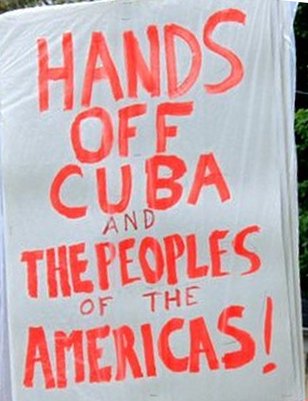 Cuban media have
shown that the "hunger strike" was for show, as the "dissidents" were
seen having food and water brought to them. The so-called strike was
broken up by Cuban authorities on November 30 as it violated health
protocols in place to block transmission of COVID-19.
Cuban media have
shown that the "hunger strike" was for show, as the "dissidents" were
seen having food and water brought to them. The so-called strike was
broken up by Cuban authorities on November 30 as it violated health
protocols in place to block transmission of COVID-19.
Ubieta Gómez explained that the "movement" is "not about freedom of speech, much less freedom of artistic expression, but rather of the creation of a political opposition clearly already sponsored by imperialism, about the restoration of a bourgeois democracy and the death of any trace of people's democracy. Although perhaps many of those making these demands do not know it, the true purpose of all this is the restoration of a neo-colonial Cuba. So that no doubt remains, high officials of the Trump government have immediately rushed to defend their supporting actors. They (the Trump forces) know they are on the way out and they have to inflict as many knife wounds [as they can] as they go."
Notably, Jake Sullivan, U.S. President-Elect Joe Biden's national security adviser wrote on Twitter regarding the Cuban government's opposition to U.S. interference through the "San Isidro Movement:" "We support the Cuban people in their struggle for liberty. The Cuban people must be allowed to exercise the universal right to freedom of expression." This indicates that the overall policy of the U.S. to confound freedom of expression and violent acts against the public order will continue.
For its part, the Canadian government, which claims to uphold a rules-based international order, has been silent on the U.S. gross and flagrant violations of diplomatic relations with Cuba. This silence underscores its subservience to the U.S. which is unacceptable to Canadians.
The Canadian Network on Cuba and the Table de concertation de solidarité Québec-Cuba have called on Canadians and Quebeckers to denounce U.S. imperialist interference in Cuba and the attempts to target Cuban youth to foment counterrevolution. They especially denounce the genocidal U.S. blockade against Cuba and call on all peace- and justice-loving people to go all out and take part in the monthly pickets and other actions in Canada demanding that the U.S. end its interference in Cuba.
(With files from Prensa Latina, Granma and the CNC.)
U.S. Blockade Violates the
Cuban
People's Human Rights
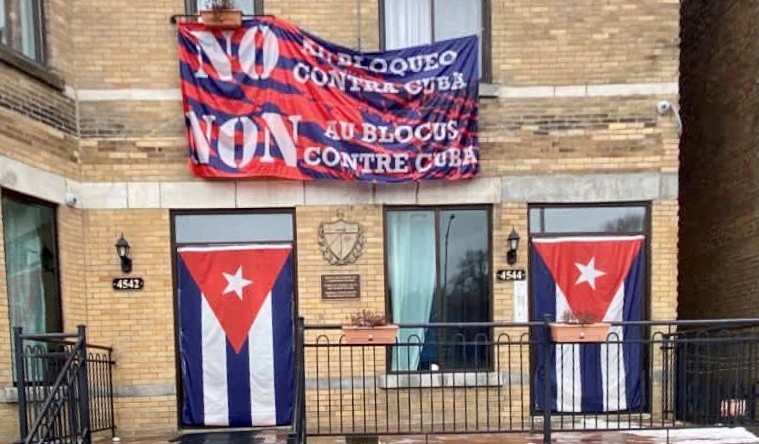
December 10, 2020. Cuban
consulate in Montreal on Human Rights Day.
On the occasion of December 10, 2020, International Human Rights Day, organizations in Quebec are calling for condemnation of the United States' flagrant and massive violation of the Cuban people's human rights through its imposed economic, financial and commercial blockade. The U.S. embargo has been imposed since 1962 and has been rejected every year since then by most of the international community at the United Nations General Assembly.
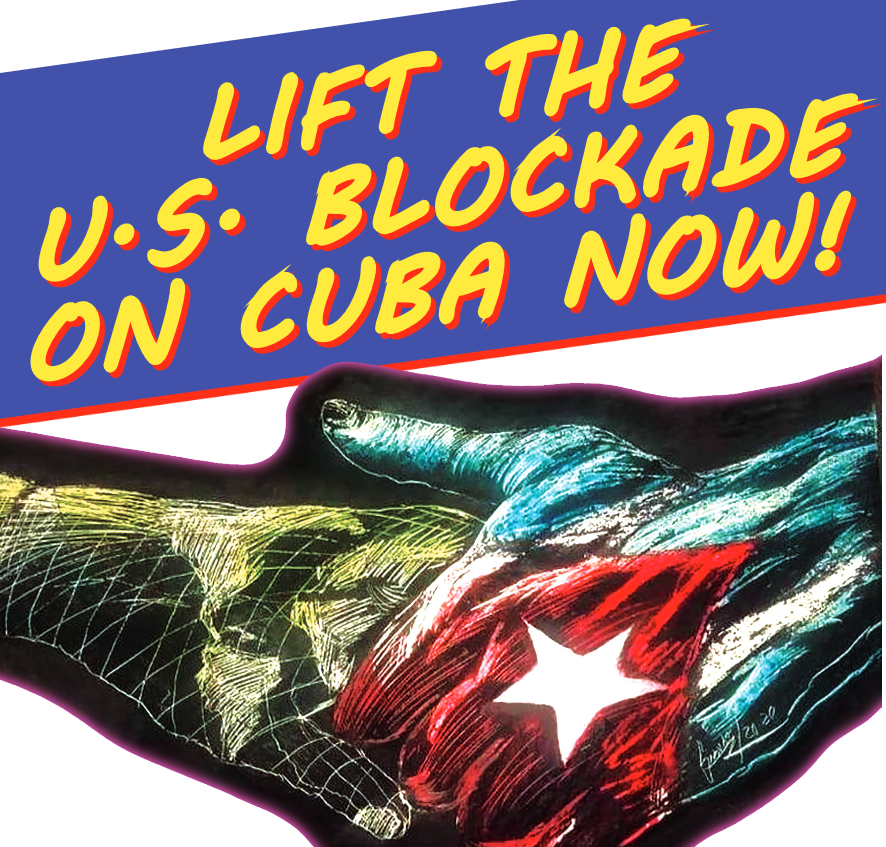 Over the last 60
years, the United States has imposed an inhumane blockade on Cuba based
on economic sanctions including financial controls, the suspension of
aid and technical assistance, the freezing of the Cuban state's
financial assets, the imposition of a boycott on transactions of all
kinds, along with sanctions on foreign companies involved in trade with
Cuba.
Over the last 60
years, the United States has imposed an inhumane blockade on Cuba based
on economic sanctions including financial controls, the suspension of
aid and technical assistance, the freezing of the Cuban state's
financial assets, the imposition of a boycott on transactions of all
kinds, along with sanctions on foreign companies involved in trade with
Cuba.
Today, in the midst of a global crisis caused by the spread of the COVID-19 virus, which has tested the capacity of all states in guaranteeing the health of their citizens, Cuba has succeeded in controlling the pandemic thanks to its universal and free health care system, its preparedness in the fight against epidemics and natural disasters, and its development of the biotechnology industry.
During a virtual summit of the G20 countries at the end of March, UN Secretary General António Guterres and UN human rights experts expressed the need to lift economic sanctions against countries suffering from this scourge, to avoid a health crisis.
The United States has not responded to the call to relax the blockade against Cuba. To the contrary, the U.S. administration has tightened its sanctions by hitting at the Cuban economy overall, making it impossible to find commercial partners and carry out financial transactions. During the pandemic, this makes it all the more difficult to acquire sanitary equipment and food to adequately care for the Cuban people.
 However, despite
this illegal blockade, Cuba has been able to respond to the World
Health Organization's call, in the spirit of unity and solidarity, to
intensify cooperation and collaboration at all levels in order to
contain and control the COVID-19 pandemic and mitigate its impact. Upon
request, Cuba has sent teams of doctors and support personnel from the
Henry Reeve International Cuban Medical Brigade Specialized in Disaster
Situations and Serious Epidemics to over 40 countries and territories.
Since 2005, the brigade has carried out over 60 missions on four
continents by providing the humanitarian expertise of 9,000 health
professionals.
However, despite
this illegal blockade, Cuba has been able to respond to the World
Health Organization's call, in the spirit of unity and solidarity, to
intensify cooperation and collaboration at all levels in order to
contain and control the COVID-19 pandemic and mitigate its impact. Upon
request, Cuba has sent teams of doctors and support personnel from the
Henry Reeve International Cuban Medical Brigade Specialized in Disaster
Situations and Serious Epidemics to over 40 countries and territories.
Since 2005, the brigade has carried out over 60 missions on four
continents by providing the humanitarian expertise of 9,000 health
professionals.
We, the signatories of this declaration, condemn attempts by the United States government to manipulate the human rights issue. In November alone, the U.S. Administration added $1 million for its projects of subversion and internal interference in Cuba. This same funding is being used to organize and encourage groups and individuals in different countries with diplomatic representation.
The signatories of this declaration will continue to maintain ties of friendship with Cuba through the strengthening of official relations which Cuba and Canada have maintained since 1945. It should be noted that Canada and Mexico were the only two countries in this hemisphere that did not break off relations with Cuba after the triumph of the 1959 revolution.
On the occasion of International Human Rights Day, NO TO THE BLOCKADE AGAINST CUBA!
(Translated from original French by TML. Photo: Table de concertation de solidarité Québec-Cuba, Adan, CNC)
False Analogies
There's a small section amongst those who support the most foul elements of "dissidence" in Cuba that has, for days, been promoting certain astonishing arguments on social media.
It so happens that they're comparing the assault on the Moncada Barracks, Radio Reloj, and the actions of the Revolutionary Directorate during the clandestine struggle to current calls to take over radio and television stations, vandalize shops or promote street violence. I'm not sure whether comparing those two scenarios is out of an absolute ignorance of history, ruthless opportunism, or a false naiveté. I'm pretty sure it's the latter.
Faced with such a scenario, one could well speak of contexts, how each event was organized, who the protagonists in each of the actions were, and about practice based on ethics and honesty. This would all provide enough arguments to counter the nonsense. However, it would also be enough to just look at the aims.
What was the Generation of the Centenary after? What did it build when it came to power? What national project were they fighting against? Each answer points to it being a true struggle for freedom, for the dignity of the Homeland and for social inclusion, amongst a multitude of other achievements.
In our analysis, we also look at the consequences. How many young people died at the hands of those who carried out the repression after July 26, 1953? How many more were victims of torture? Who could ever forget the look of José Luis Tassende, the death of José Antonio, the brutality against Lidia and Clodomira, the youth of Humboldt 7, Frank's life, Abel's eyes? Seriously, are we going to make a comparison with such greatness?
Those who excuse their supporters and defend a notion of legitimacy that they have not earned, should also ask themselves where the tortured, the dead, the disappeared and those who have been judged outside the law are today. On what street has a corpse appeared?
The other recurring argument these days is even more bankrupt: if those who receive money from the United States to carry out political actions in Cuba are mercenaries, then so is Martí, because he raised funds abroad to finance the Necessary War. Are such statements a provocation or a "show of intelligence"?
It is better to go back to the questions: Is the delivery of lavish funds, through official channels and institutions linked to the United States Government -- the last one being a million dollars for projects that promote changing the system -- comparable to Martí’s work as an emigrant?
Does the Apostle's perseverance, that austere life to give everything to a country, really amount to the same thing as them waiting patiently for their allowance to mount their show and respond to foreign interests? Is interference the same as solidarity? Are a people and a government the same thing?
How many have forgotten the patriotic clubs, the meetings with the cigar makers in Tampa and Key West, the speeches, the poor workers giving their every penny? Is the restless and patriotic Martí the same as the "activist" who tries to sell a country? Who could forget Mariana in Jamaica, Gómez and Maceo in Central America, Flor, María Cabrales, Bernarda Toro?
Are they "mercenaries" because they contributed from another country to a war that would bring freedom to their homeland? Is Máximo Gómez one -- the man who faced hardships, the death of his family, disease and hunger abroad, but who did not stop collecting every peso for the Revolution?
He is the man who refused the help of a president to avoid "committing any action that does not seem to be worthy of my honest misery." It is about the hero who had to sell his glasses, his revolver and his watch -- his most precious belongings -- to support his family, while raising funds to buy weapons.
And is María Cabrales also a mercenary? The woman who founded patriotic clubs in Jamaica and Costa Rica, the wife of the Titan [Antonio Maceo] who went from house to house to collect money and lay it at the Nation's feet, who suffered exile, the death of the hero and family separation, but who never slunk into a corner.
The attempt to legitimize crime, double standards and servility based on comparisons such as those seen in recent days on social networks implies, above all else, the negation of a country and its people. To confront this, study and analysis, critical thinking and being alert to siren songs and false premises are necessary. The key today lies as well in sustaining that other dialogue with history and what it teaches us.
Yunier Javier Sifonte Díaz graduated in Journalism from the Central University "Marta Abreu" of Las Villas in 2016. Journalist from Telecubanacán. Collaborator of Cubadebate.
(Translated from original Spanish by TML Weekly.)
Election Results in Venezuela Favour the People's Forces
Election Results
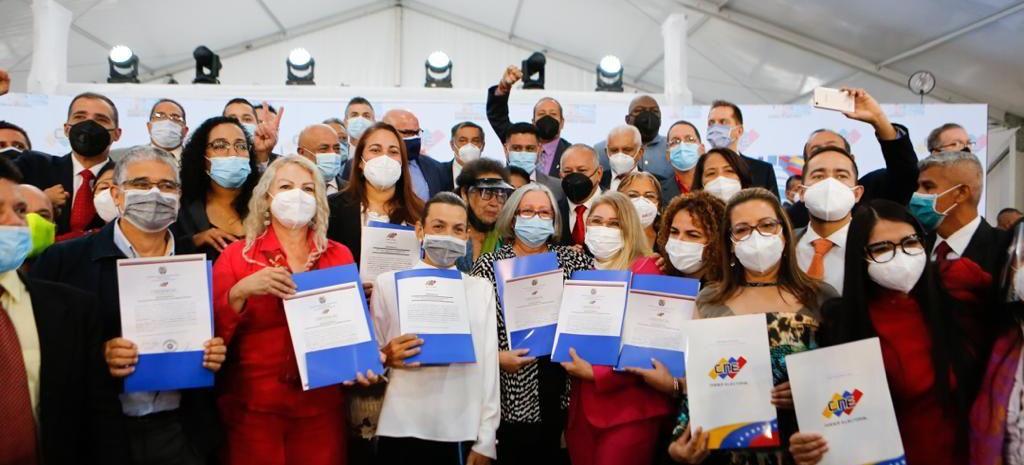
December 11, 2020.
Deputies to the newly elected National Assembly.
On December 7, with 98.63 per cent of votes cast in Venezuela's December 6 parliamentary election counted, the President of the National Electoral Council (CNE) of Venezuela, Indira Alfonzo, presented the second bulletin of results. She reported that 6,251,080 valid votes were cast, of which the Great Patriotic Pole (GPP), an alliance of parties led by the United Socialist Party of Venezuela, received 68.43 per cent. The opposition alliance Democratic Action received 17.52 per cent; a second opposition alliance, Venezuela United, received 4.15 per cent, and the Communist Party of Venezuela/Popular Revolutionary Alternative obtained 2.7 per cent. Other political organizations that participated received a combined total of 6.48 per cent of the votes. Turnout was reported to be 30.6 per cent of registered voters.
A few days later the assignment of seats in the new National Assembly was reported, based on the election that used a mixed proportional representation and first-past-the-post system. The United Socialist Party of Venezuela will have 253 of the 277 seats (91.34 per cent); Democratic Action gets 11 seats; Progressive Advance and Change will each have three seats; Venezuela First will have two; and COPEI and the Communist Party will each have one seat. Three Indigenous deputies, chosen on December 9 by their communities following the traditional practices of each, will occupy the three remaining seats.

December 9, 2020. Voting
takes place for three Indigenous deputies.
The Communist Party of Canada (Marxist-Leninist) sends its congratulations to the Venezuelan people who under the most adverse conditions of an all-sided war designed to wear them down and turn them against their elected government and against each other have expressed their democratic will in electing a new National Assembly. CPC(M-L) wishes the people, their Bolivarian government and leadership well and stands with them as they work to protect the victory they have achieved, defend their right to be the sovereign decision-makers of their nation, and go forward with their nation-building project.
Venezuelan People Affirm Their Right to Sovereignty

December 11, 2020.
Venezuelan people accompany elected deputies to their accreditation.
Elections to Venezuela's National Assembly were held on Sunday, December 6, within a vast mobilization of the Venezuelan people for the affirmation of their right to be and to determine their own destiny. Despite the interference, threats, sabotage and disinformation activities of the U.S., Canada, their puppet Lima Group, and the European Union to discredit and besiege the Venezuelan people, they prevailed. The victory of the Bolivarian government within these conditions of encirclement and suffocation is a great achievement.
International observers applauded the conduct of the election and commended the Venezuelan government's efforts to ensure the participation of all, compliance with sanitary measures against COVID-19, the establishment of sophisticated electronic voting stations, and numerous other measures. No incidents or irregularities occurred.
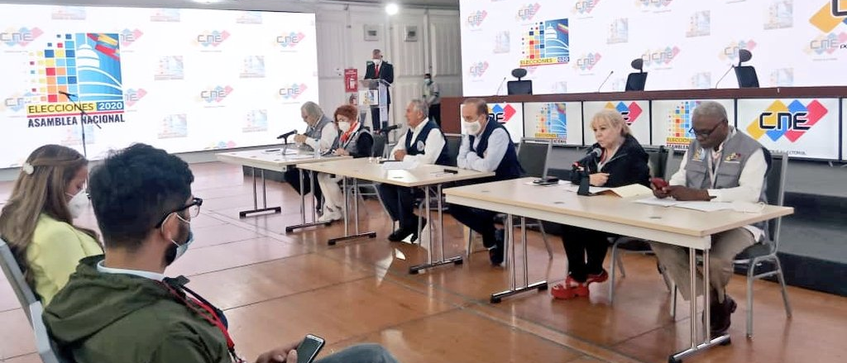
December 9, 2020.
International observers report on the conduct of the December 6
election.
The turnout rate excited the imperialist media, incited by the self-proclaimed "president" Juan Guaidó, who claimed the low voter turnout means that the Venezuelan people responded to the call to boycott the election. There is no way of knowing why the turnout was low and this is a narrow and self-serving, opportunistic and provocative "explanation" from a puppet who has only made a name for himself thanks to foreign powers far removed from the people's power.
For their part, Canada, the U.S. and the European Union refused to recognize the election results, with Canada arrogantly producing a press release denouncing them as a fraud on December 6, even before the final election results were announced. Through its Minister of Foreign Affairs François-Philippe Champagne, the Liberal government of Justin Trudeau declared that the electoral process "did not meet the minimum conditions for a free and fair exercise of democracy."

December 5, 2020. Ottawa
picket on the eve of the Venezuelan election.
This is the same Trudeau Liberal government which, in the most recent election in 2019, was elected by 22 per cent of the total number of eligible voters, receiving 33 per cent of all votes cast. In Haiti's last legislative elections, well under 25 per cent of voters turned out, yet all of these big powers recognized the vote. Canada has even "accompanied" the Haitian government in elections through the services of Elections Canada. On January 13, 2020, the mandate of Haiti's Chamber of Deputies and two-thirds of its senators ended, rendering Parliament non-functional. Since then, President Jovenel Moïse has been able to govern by decree. No statements of elections in Haiti not being "free and fair" were issued.
And Canada, along with the European Union, is applauding the crisis-ridden election results in the United States. No problem with the U.S. "democracy," they say. Elections are presumably "free and fair" in that country where literally billions of dollars are poured into the coffers of presidential candidates and millions of people are not even enfranchised to vote. This interpretation of what constitutes "free and fair" is beneath contempt. It certainly does nothing to restore credibility in the electoral systems of those who say such things.
The "debate" imposed about the participation rate in the Venezuelan elections is a pathetic diversion and part of an orchestrated plan to crush the Bolivarian nation-building project and, more generally, the struggle of the peoples of the Americas to take control of their destiny in favour of their own nation-building projects. The elections in Venezuela have taken place within the context of the offensive deployed not only against that country, but against the peoples of the Americas -- in Bolivia, Cuba, Chile and so many other countries where today the peoples are calling for the Americas to be a zone of peace, of respect between peoples and nations, without interference, blockades or sanctions.
The peoples are challenging corrupt governments, the dictatorship of the International Monetary Fund, connivance with the likes of Joe Biden, Donald Trump, Mike Pompeo and their ilk and their military activities in the region. Many peoples are also calling for the establishment of new constituent assemblies to reconstitute their nation states on a modern basis which recognizes the rights of all, challenging the corrupt electoral processes in the service of the rich, the international financial oligarchs and a handful of elite. This is where the great powers are hurting the most, as they cannot stop the peoples' movement for the New, of which the Venezuelan people are a proud part.
The battle for true democracy and over who decides is the order of the day.
(Photos: TML, AVN, O. Redes)
The People and No One Else Will Decide What Happens in Venezuela
 Following the
election of the new National Assembly, Venezuelan President
Nicolás Maduro expressed satisfaction that the National
Assembly had been freed from the control of opposition forces who used
it as a base over the past five years to violate the country's
constitution, obstruct the normal functioning of government and support
the U.S. economic war against the country. He called it a great victory
for democracy, for the constitution. Maduro has said that the first
task of the new legislature must be to repair the damage done to the
country's economy by the sanctions, adopting necessary measures to
fortify and shield it from the effects of the U.S. economic war. He
said this would require passing legislation approved in October by the
National Constituent Assembly, which dissolves December 31, known as
the Anti-Blockade Law for National Development and the
Guarantee of Human Rights.
Following the
election of the new National Assembly, Venezuelan President
Nicolás Maduro expressed satisfaction that the National
Assembly had been freed from the control of opposition forces who used
it as a base over the past five years to violate the country's
constitution, obstruct the normal functioning of government and support
the U.S. economic war against the country. He called it a great victory
for democracy, for the constitution. Maduro has said that the first
task of the new legislature must be to repair the damage done to the
country's economy by the sanctions, adopting necessary measures to
fortify and shield it from the effects of the U.S. economic war. He
said this would require passing legislation approved in October by the
National Constituent Assembly, which dissolves December 31, known as
the Anti-Blockade Law for National Development and the
Guarantee of Human Rights.
When the law was approved in the Constituent Assembly, Vice President Delcy Rodríguez said it would offer new ways to partner with international investors by providing special protections for their investment so that Venezuela could take a step forward, to go on an economic offensive against the U.S.-led sanctions that are strangling the economy. She said the government would unveil a "basket of projects" for foreign investors in such areas as oil, gas, mining, agriculture, tourism, and "all areas where Venezuela has great potential to generate large-scale investment."
While in Washington "they speak of human rights," Rodríguez said, "their policies are aimed at restricting the well-being of an entire nation."
Imperialist Response to Victory of Bolivarian Forces
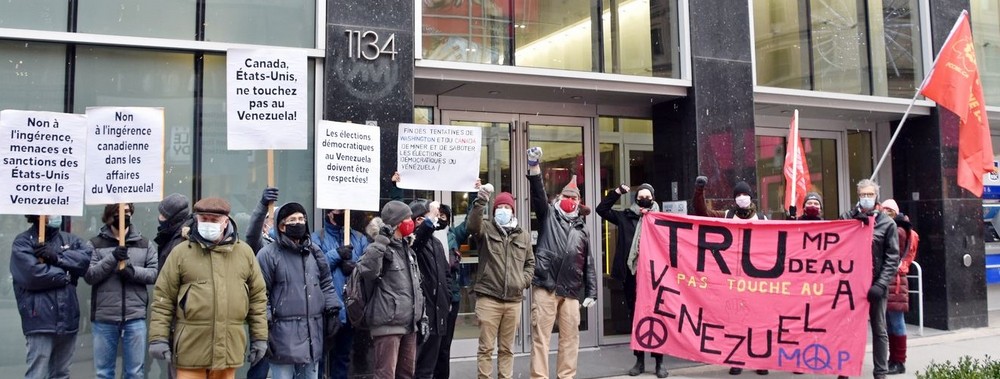
December
6, 2020. Montreal picket on the day of the Venezuelan election.
As expected, the results of the election have not been recognized by governments entangled in the multi-pronged U.S. war against Venezuela that continues trying to force a parallel "president" and "government" on the people in defiance of their expressed will. The U.S. has made it clear that the next step in its regime change playbook requires deeming the opposition-controlled National Assembly whose term ends January 5, 2021 -- the one Juan Guaidó presided over briefly, forming the basis of his fabricated presidency -- to be the country's only "legitimate" legislative body. Not long after U.S. Secretary of State Mike Pompeo denounced the election as "rigged" and a charade, Canada and the Lima Group (with the exception of Argentina and Uruguay), Britain and the leadership of the European Union, in a servile fashion issued their own versions of the same thing
Minister of Foreign Affairs, François-Philippe Champagne, for example, said in a statement released on December 6 before the results of the election were known: "Canada does not recognize the results of Venezuela's December 6 electoral process because the process did not meet the minimum conditions for a free and fair exercise of democracy." He then called for new presidential and parliamentary elections to be held in keeping with standards that presumably the U.S. and its Organization of American States, Canada and the Lima Group embody and are in a position to give lessons about!
Former Spanish Prime Minister José Luis Rodríguez Zapatero, who was in Venezuela to observe the election, and has facilitated numerous negotiation attempts between the government of Nicolás Maduro and opposition forces that the U.S. invariably intervened to torpedo, said the elections must end the unfair and incomprehensible sanctions against Venezuela. "The policy of sanctions and non-recognition could lead us to the greatest absurdity in the history of International Law," he warned.
The advice was lost on the Trudeau government in Canada and the others however, with the EU announcing new sanctions against certain Venezuelan officials this week.
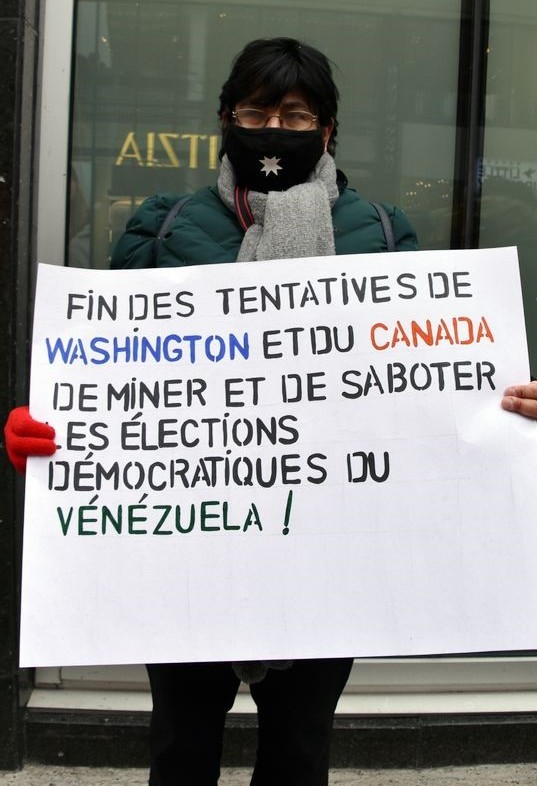
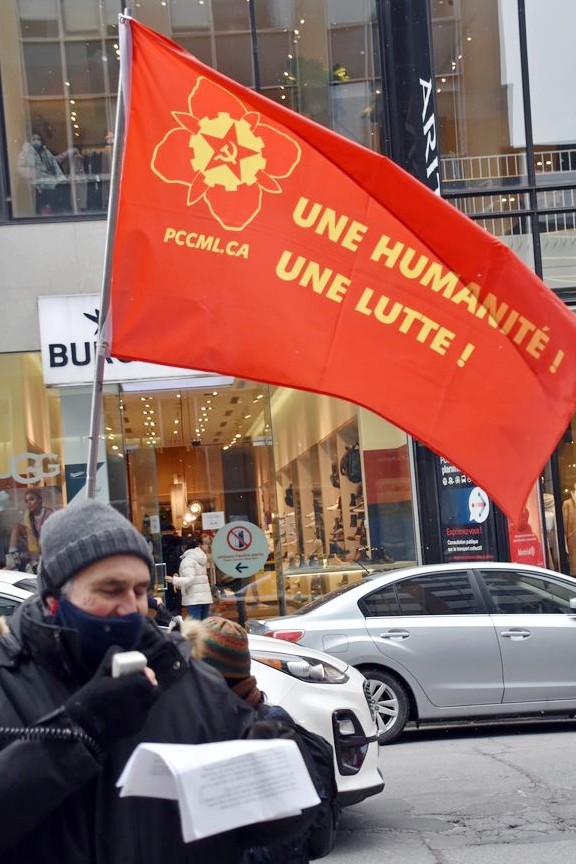
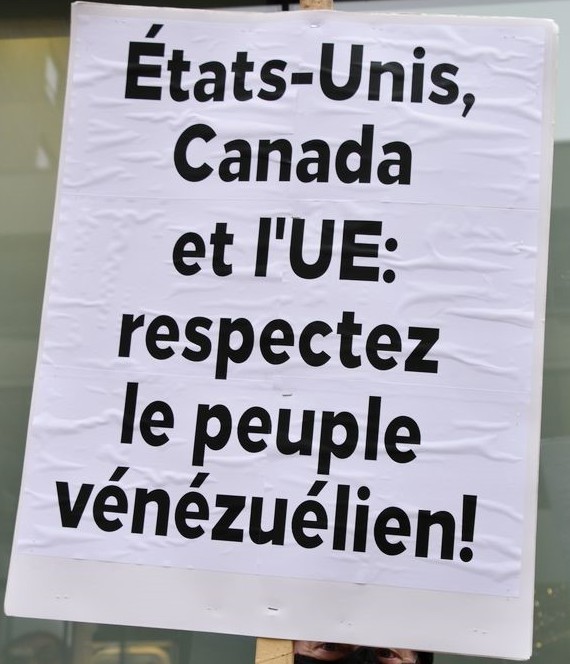
December
6, 2020. Montreal
U.S. "Multilateralism that Works" Applied Against Venezuela
Speaking to the 50th General Assembly of the Organization of American States (OAS) in October, Mike Pompeo called the organization an example of "multilateralism that actually works." What he meant by that became apparent as he proceeded to give the governments of other countries their marching orders, as if they were all U.S. vassal states. First on the list of his government's "expectations," he said, was that that all member states not recognize past or future elections of "the illegitimate Maduro regime."
On December 9 a special meeting of the Permanent Council of the OAS was held at the request of Brazil, Canada, Colombia, the U.S. and a number of other countries to "consider the political situation in the Bolivarian Republic of Venezuela in the context of the parliamentary elections held by the illegitimate regime of Nicolás Maduro."
At the meeting a resolution in line with what would be expected of the U.S. and its Lima Group was passed by 20 member states with two opposed, five abstaining and six Caribbean countries and Nicaragua not in attendance.[1] The resolution claimed the "fraudulent" election was held for the purpose of eliminating "the only legitimate and democratically elected institution remaining in Venezuela." It said that the installation of those elected would further destroy democracy, the rule of law and aggravate all other problems that affect the everyday life of Venezuelans. In other words, the U.S. would be forced to continue intensifying its cruel war of attrition against Venezuela.
The resolution praised the contrived "popular consultation" held over the the past week by the Juan Guaidó-Leopoldo López faction, in which they asked Venezuelans at home and abroad to answer a set of leading questions that seek to show the people do not recognize the results of the December 6 election and ask "the international community" to do the same; and furthermore, that they "order" the necessary steps taken to get "the international community" to intervene to "rescue our democracy, address the humanitarian crisis and protect the people from crimes against humanity."
After asserting that the December 6 election was allegedly neither free nor fair "in accordance with the conditions established in international law" and other democratic norms the governments of the U.S., Canada and their pathetic Lima Group claim to uphold, the counter-revolutionary resolution also called for "holding, as soon as possible, free, fair, transparent and legitimate presidential and parliamentary elections."
But it was not all smooth sailing for the U.S. and Canada. A number of countries that voted in favour of the resolution made a point of stating that their positive vote did not imply agreement with continuing to recognize the outgoing National Assembly when its term lapses in January as the U.S. is calling for.
Argentina's Ambassador to the OAS Carlos Raimundi, who abstained on the vote, was one who took that stand. He said it would be a violation of Venezuela's constitution to continue recognizing the expired legislature. He also said his government was committed to facilitating the search for a political solution in Venezuela through dialogue, and that the electoral path was the only viable one for renewing the country's institutions. Raimundi said it was wrong to ignore the will of those who took part in the election and dictate conditions from outside without contributing even minimally to the elections, or worse, pushing for them to be boycotted. He then called for the policy of sanctions and non-recognition to be reconsidered, saying it had led nowhere.
An honourable stand was taken by Mexico's Ambassador Luz Elena Baños, who along with Bolivia’s representative, voted against the resolution. Her words also represented many if not all those who stayed away from the meeting. She sharply denounced the undemocratic and intolerant behaviour that has prevailed for some time inside the OAS, where an exclusive group of countries come up with the resolution without consulting all members. Baños condemned the resolution as interventionist, saying the role of the OAS was not to recognize or not recognize governments. The approach of these countries that do not even oppose sanctions, she said, is against multilateralism, which is supposed to try and solve problems based on international law, not block the possibility of negotiating.
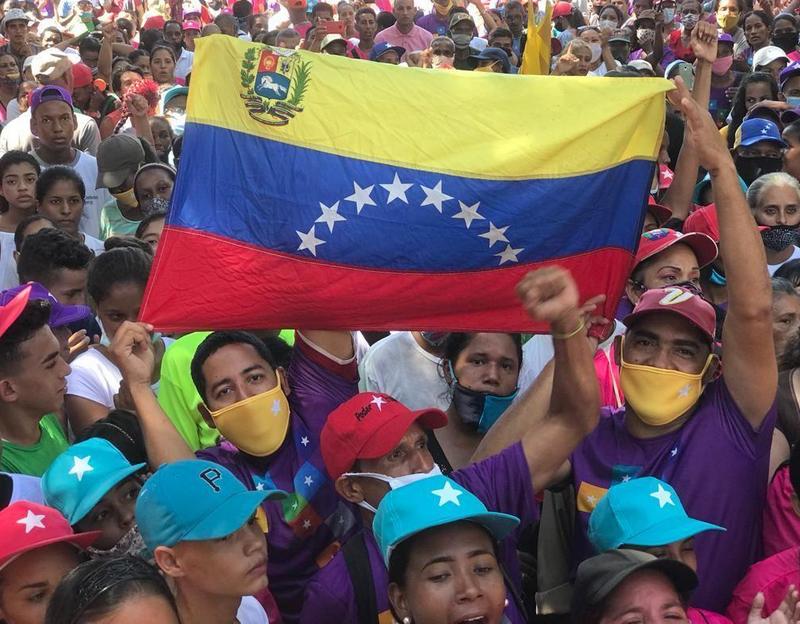 When Canada's
Ambassador Hugh Adsett took the floor, he spuriously accused the
Venezuelan "regime" of committing crimes against humanity "against all
who dissent, in order to maintain its grip on power." He uttered weasel
words about Canada wanting to work along with Venezuelans and other
members of the OAS to help them solve their problems. He imposed as the
condition for working together the holding of what Canada and the OAS
would recognize as "free and fair presidential and parliamentary
elections."
When Canada's
Ambassador Hugh Adsett took the floor, he spuriously accused the
Venezuelan "regime" of committing crimes against humanity "against all
who dissent, in order to maintain its grip on power." He uttered weasel
words about Canada wanting to work along with Venezuelans and other
members of the OAS to help them solve their problems. He imposed as the
condition for working together the holding of what Canada and the OAS
would recognize as "free and fair presidential and parliamentary
elections."
The hypocrisy of the Trudeau Liberals has no bounds. Their actions do not speak for Canadians who they have never consulted about the dirty war they are engaged in against the Venezuelan people and others around the world targeted by the U.S. and NATO for regime change and destabilization. Instead of interfering in the affairs of the Venezuelan people at the behest of the narrow private interests which are favoured by the removal of a Bolivarian government, the Trudeau government should instead concern itself with the lack of democratic conditions in its own house and the Canadian people's demands for decision-making power at home.
Note
1. In favour: Bahamas, Brazil, Canada, Chile, Colombia, Costa Rica, the Dominican Republic, Ecuador, El Salvador, Guatemala, Guyana, Haiti, Honduras, Jamaica, Panama, Paraguay, Peru, St Lucia, Uruguay, United States. The illegal "Venezuelan" delegation also voted in favour.
Against: Bolivia, Mexico
Abstained: Argentina, Barbados, Belize, Saint Kitts and Nevis, Suriname
Absent: Antigua and Barbuda, Dominica, Grenada, Nicaragua, Saint Vincent and the Grenadines, Trinidad and Tobago.
(Photos: J. Escalona, C. Floria)
Fight for Rights and Renewal in India
Mass Farmers' March on Delhi Enters Week Three

December 10, 2020. Rally
held by farmers camped at Tikrit border crossing outside Delhi on the
occasion of Human Rights Day.
Reports from New Delhi inform that millions of farmers are gathered on the border between Haryana and Delhi. The city is under siege. There is a Mela [Fair] at least 60 to 70 kilometres long on the GT road [National Highway]. "Very festive atmosphere, Langar, cultural performances, people looking after each other, health workers are here, surrounding villages are providing vegetables, milk, ghee and daily necessities," one person wrote. Reports indicate that the farmers are equipped to stay there for months if need be. A contingent of Nihang Sikhs -- Sikh warriors on horseback -- has also joined the farmers. "They have tied their horses to the barricades and are practising their martial arts," the observer writes.

December 10, 2020.
A contingent of Nihang Sikhs -- Sikh warriors on
horseback -- has joined the farmers.
India Kisan Sangharsh Coordination Committee (AIKSCC) issued a press release on December 9 which reads:
"The National Working Group of AIKSCC took the following decisions:
- AIKSCC joins farmers' organizations in denouncing and rejecting the insincere and arrogant so-called 'new' proposal of Central Govt.
- AIKSCC to launch nationwide campaign Sarkaar ki Asli Majboori -- Adani, Ambani, Jamakhori to expose Modi Govt.
- AIKSCC calls upon farmers' organizations to organize continuous protests."




December 7-10. Border
crossings into Delhi at Tikrit, Singhu, and elsewhere are
blockaded by the farmers' protests.
 Several rounds of
talks with the government did not fulfill the demands of the farmers.
Earlier the government's mantra was that the "farmers do not
understand." Now it is saying that it will look into their demands and
make some changes. Farmers want the outright repeal of the offending
laws. Referring to the contract farming these laws introduce, the
farmers are saying that the "East India Company is back." One young
farmer pointed out that in the last 10 years the Minimum Support Price
(MSP) of paddy (rice) has gone up by 18 per cent but the cost of inputs
has gone up by 53 per cent. Another young farmer said, "Leader and
Dealer, have the same letters. These leaders of political parties have
become dealers for Ambani and Adani."
Several rounds of
talks with the government did not fulfill the demands of the farmers.
Earlier the government's mantra was that the "farmers do not
understand." Now it is saying that it will look into their demands and
make some changes. Farmers want the outright repeal of the offending
laws. Referring to the contract farming these laws introduce, the
farmers are saying that the "East India Company is back." One young
farmer pointed out that in the last 10 years the Minimum Support Price
(MSP) of paddy (rice) has gone up by 18 per cent but the cost of inputs
has gone up by 53 per cent. Another young farmer said, "Leader and
Dealer, have the same letters. These leaders of political parties have
become dealers for Ambani and Adani."
Affiliates of the ruling party and some of its leaders have been trying to incite people against the farmers by saying the farmers are "Khalistanis," which they equate with terrorism. But the farmers from Haryana, Rajasthan, Uttar Pradesh and other places call on people not to get diverted. They respond by saying: "If fighting for rights makes one Khalistani, then all of us are Khalistanis."
On December 5, people all across India burnt effigies of the oligarchs Adani, Ambani and others whose big corporate houses are stealing the land of the farmers. This was followed on December 8 with an all-India shut down and strike. Hundreds of millions of people shut India down to demand that the government fulfill the demands of the farmers.
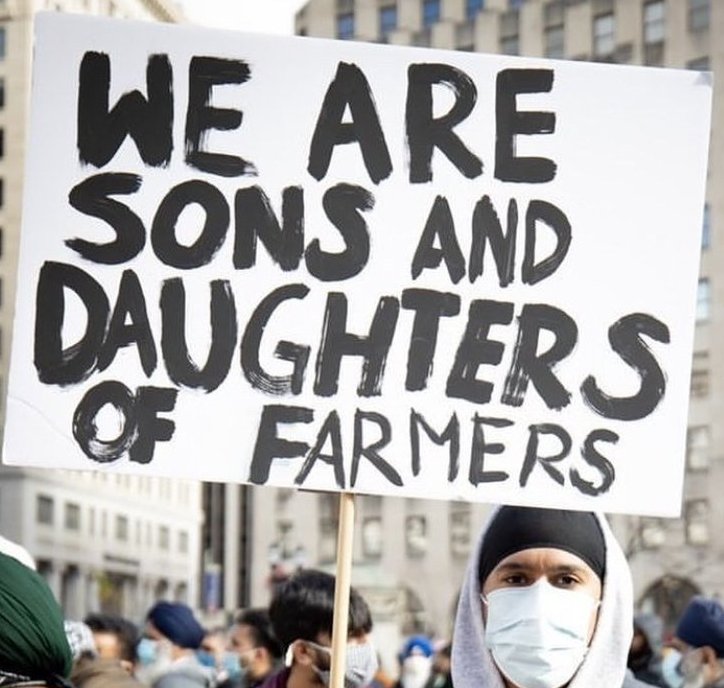 Massive rallies
in front of India's missions abroad are taking place in support of
farmers. Millions of people have signed petitions. Non-resident Indians
(NRIs), especially Punjabis abroad, are playing an important role. For
example, young second and third generation Punjabis abroad are
explaining to their relatives the experience of farmers in the U.S. and
Canada where big corporate agribusinesses stole the lands of Indigenous
peoples and farmers. Young lawyers from the U.S., Canada and Britain
have looked at the laws and are giving the farmers in Punjab legal
advice. They have also raised a lot of money to help the farmers who
are in serious difficulty. On December 10, International Human Rights
Day, they held car rallies in front of Indian missions, to protest
against human rights violations.
Massive rallies
in front of India's missions abroad are taking place in support of
farmers. Millions of people have signed petitions. Non-resident Indians
(NRIs), especially Punjabis abroad, are playing an important role. For
example, young second and third generation Punjabis abroad are
explaining to their relatives the experience of farmers in the U.S. and
Canada where big corporate agribusinesses stole the lands of Indigenous
peoples and farmers. Young lawyers from the U.S., Canada and Britain
have looked at the laws and are giving the farmers in Punjab legal
advice. They have also raised a lot of money to help the farmers who
are in serious difficulty. On December 10, International Human Rights
Day, they held car rallies in front of Indian missions, to protest
against human rights violations.
People in India are engaged in action to make their own history. The mass protests and courage of the people once again reveal that the arrangements that the ruling elite made with the British in 1947 are anti-people. The conditions put on the agenda for solution the urgent necessity for the people's empowerment. They also reveal that the "largest democracy in the world" is nothing but a ruthless dictatorship of a tiny ruling elite. People must exercise their sovereignty themselves without the mediation of political parties or party government. The state created in 1947 put some agents of the British Raj in charge of domestic and international relations which favoured the narrow interests of the Raj. Today, under neo-liberal globalization, this has become intolerable. The burden on the people is unsustainable. The peoples' fight for their rights and the rights of all will give rise to new arrangements which satisfy the claims of the people on society and are on par with the requirements of the times.
Instigating anarchy and violence is the template that the British developed after the First War of Independence in 1857 against British rule. It was specifically used to divide the Indian people in 1947 and the institutions imitate those of the British in order to replicate their rule using Indians instead of British personalities. This is the "democracy" that establishment forces, including those calling themselves liberals and secular forces, want people to save "at all costs" as if they are the antidote, not the purveyor of anarchy and violence. This is the blindfold of anti-consciousness that those who have usurped power by force manipulate every minute of every day so that nobody looks at the actual conditions and the ensemble of social relations to see what they reveal. People must lift this veil of disinformation, deception and fraud.


November 30, 2020.
Demonstration organized by youth in support of the farmers' protests.
Across India Blockades and other Actions Stand with Farmers
March on Delhi
Chandigarh, December 1, 2020

West Bengal,
Bhand, December 8, 2020




Tamil Nadu,
Bhand, December 8, 2020




(Photos: AIKSCC, Indian Youth Congress, Xinhua, A. Bangar, A. Dhillon, H. Manne, D. Journalist, Chandigarh 17, H. Saini)
Actions Around the World Support Indian Farmers
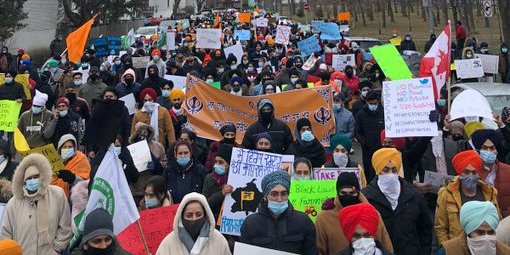
December 6, 2020.
Montreal
As Indian farmers continue their steadfast struggle to affirm their rights and well-being and oppose the attacks on them by India's Modi government through its three agriculture reform bills and the use of state violence against their protests, working people in around the world are holding actions to support the farmers and create awareness of their cause.
Canada
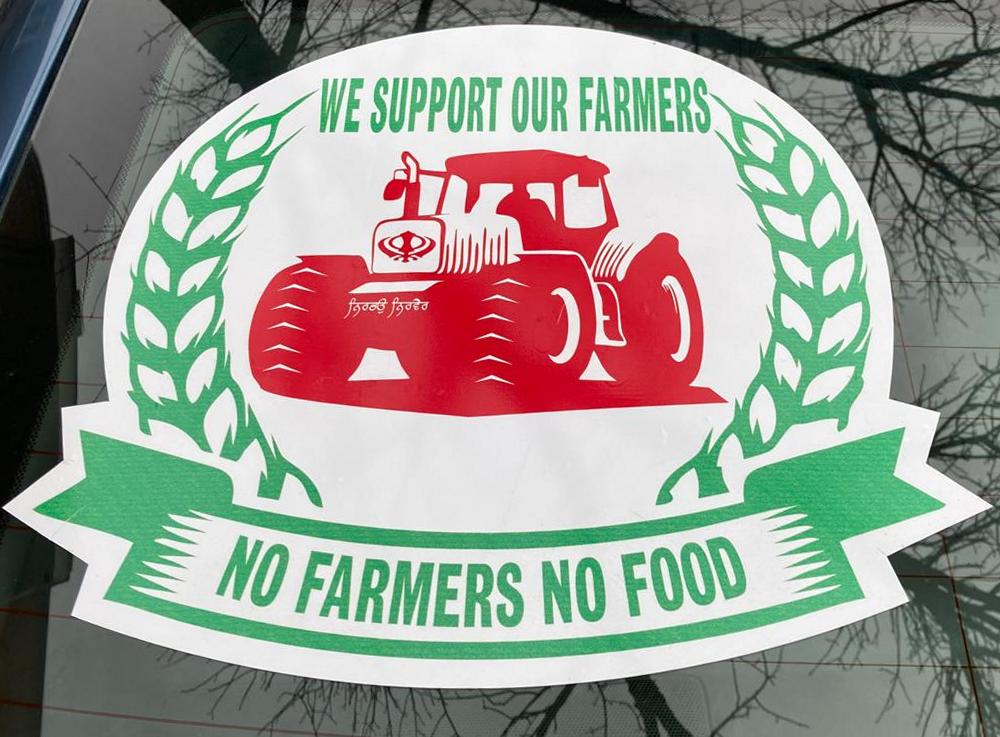 In Halifax on December 5, more than 100 vehicles
participated
in a car rally outside Canada's immigration museum, Pier 21, in
the south end of the city.
In Halifax on December 5, more than 100 vehicles
participated
in a car rally outside Canada's immigration museum, Pier 21, in
the south end of the city.
In Charlottetown on December 1, an action was held at the intersection of Great George and Grafton Streets More rallies are planned.
In Montreal on December 6, a mass rally
was held in the
borough of LaSalle on the south end of the island, with another
action there on December 12.
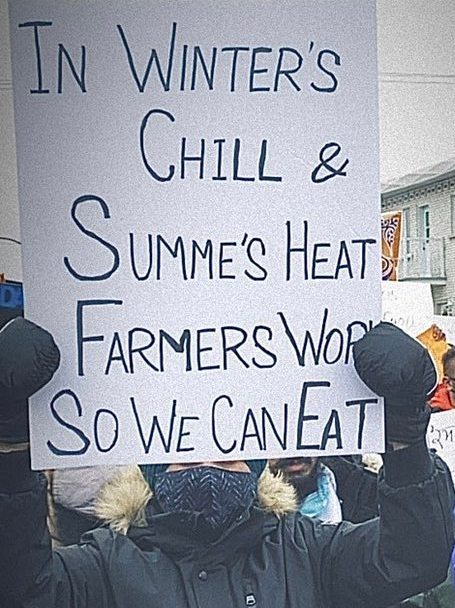
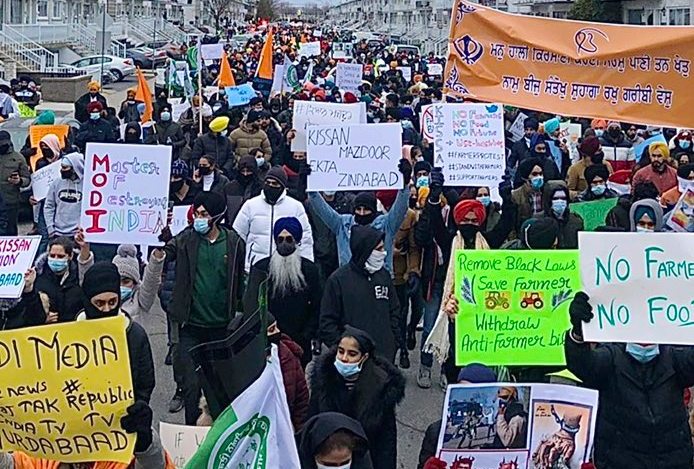
December
6, 2020. Montreal rally
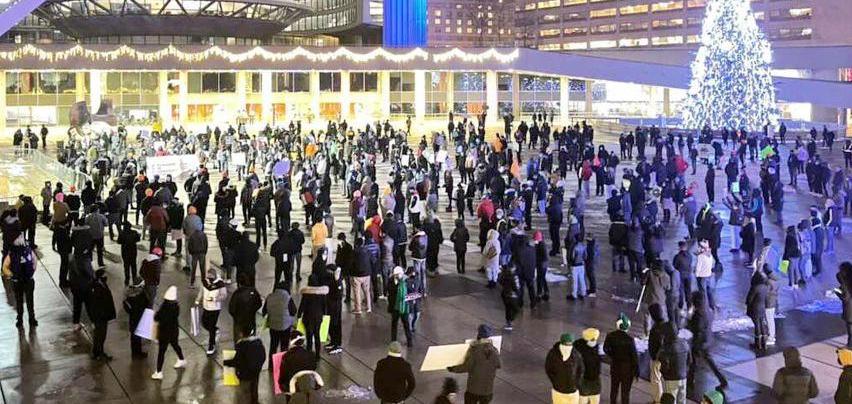
December 1, 2020. Rally
at Toronto City Hall in support of Indian farmers.
In the Greater Toronto Area, organizers of the Kissan Dharna Car Rally reported that on December 5 more than 1,500 vehicles and thousands of people took part in the car rally which travelled from Bramalea GO Station in Brampton to the Indian General Consulate in Toronto. This was preceded by another car rally from Brampton to Toronto on December 1, and an action on November 29 in Brampton.

November 29, 2020.
Brampton
Also in Ontario, a car rally was held in Hamilton in recent days, with a long line of cars making its way east on Barton St.
In Winnipeg, social media reported that "thousands of vehicles" drove down the Perimeter Highway on December 6 in support of the Indian farmers.
December 6, 2020. Winnipeg
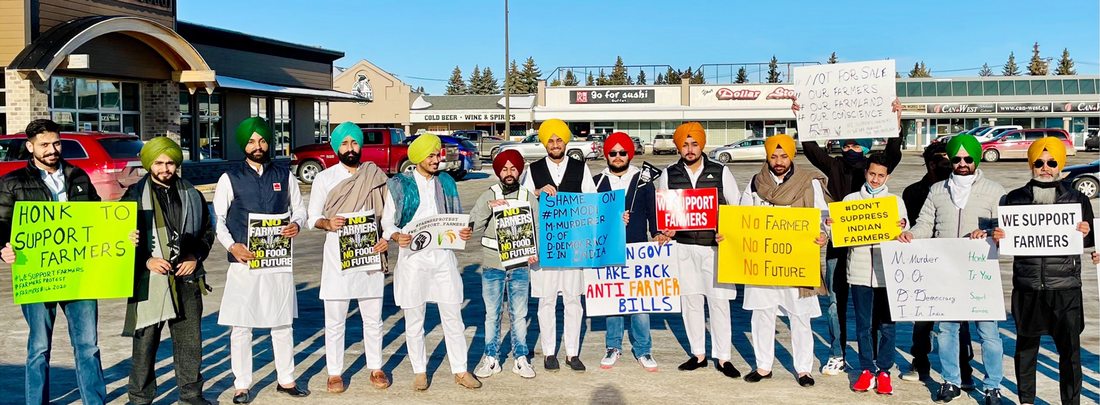
December 6, 2020.
Saskatoon
In Alberta, rallies have taken place in Calgary on December 2 and 5. In Edmonton, a rally with at least 1,000 cars took place on December 6.
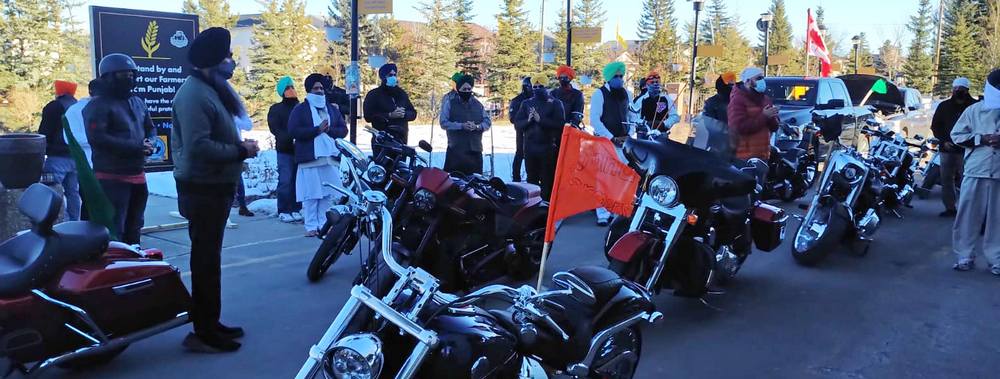
December 6, 2020. Calgary
In
cities and towns across British Columbia, there have been pickets and
mass rallies since December 2 in support of India's farmers. On
December 2 a large car rally from Surrey to the Indian Consulate in
downtown Vancouver drew young and old and was followed up, on December
5, by an even larger procession of cars, trucks, tractors and
motorcycles -- organizers reported over 3,000 vehicles -- again from
Surrey to the Indian Consulate. In Prince George, on December 2 around
100 vehicles participated in a rally and another is planned for
December 13. Pickets and car rallies have been held in other towns and
cities including Prince George, Kamloops, Kelowna, Courtenay,
Abbotsford, and Richmond. There has been a daily picket in Delta and
daily pickets along with other larger protests on some days are
continuing at the Indian Consulate in Vancouver.

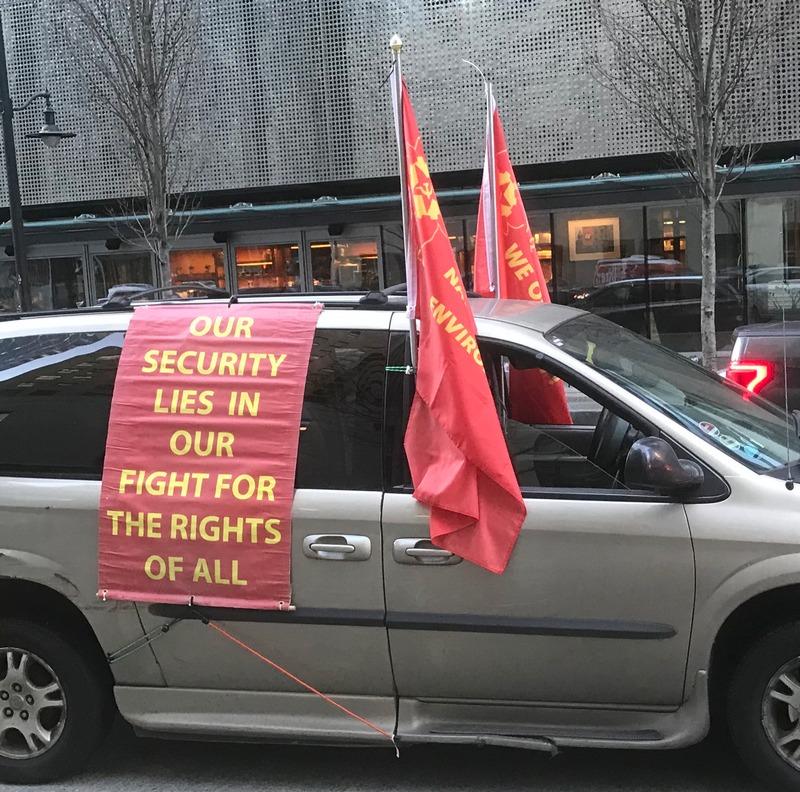

December 5, 2020. Vancouver
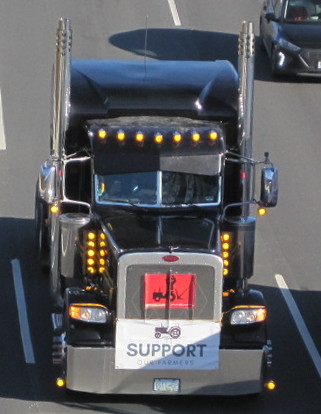
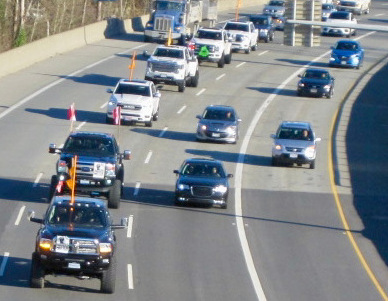
December 5, 2020. Burnaby
United States
Seattle, Washington
San Francisco, California
California

Houston, Texas
New York, New York
Washington, DC
Europe
London, England
Birmingham, England
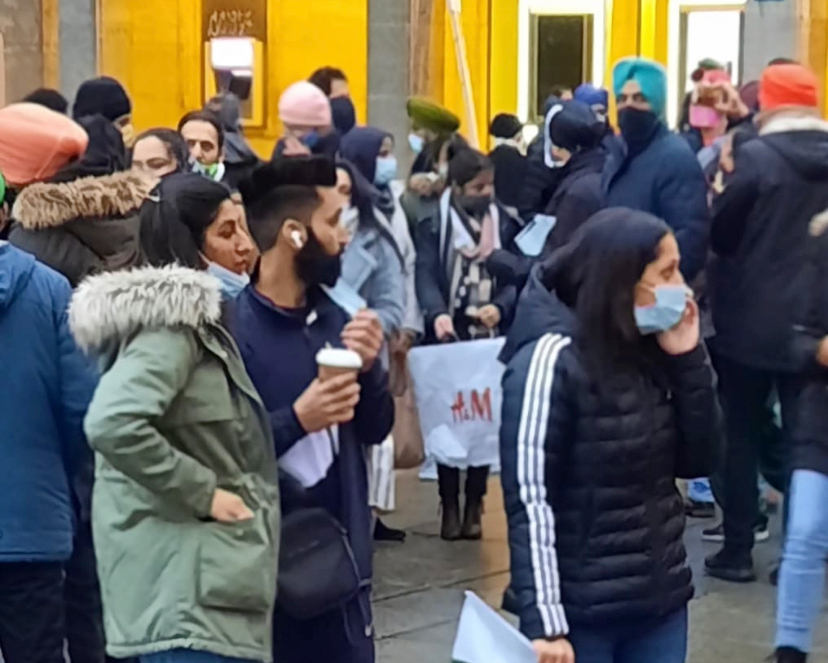
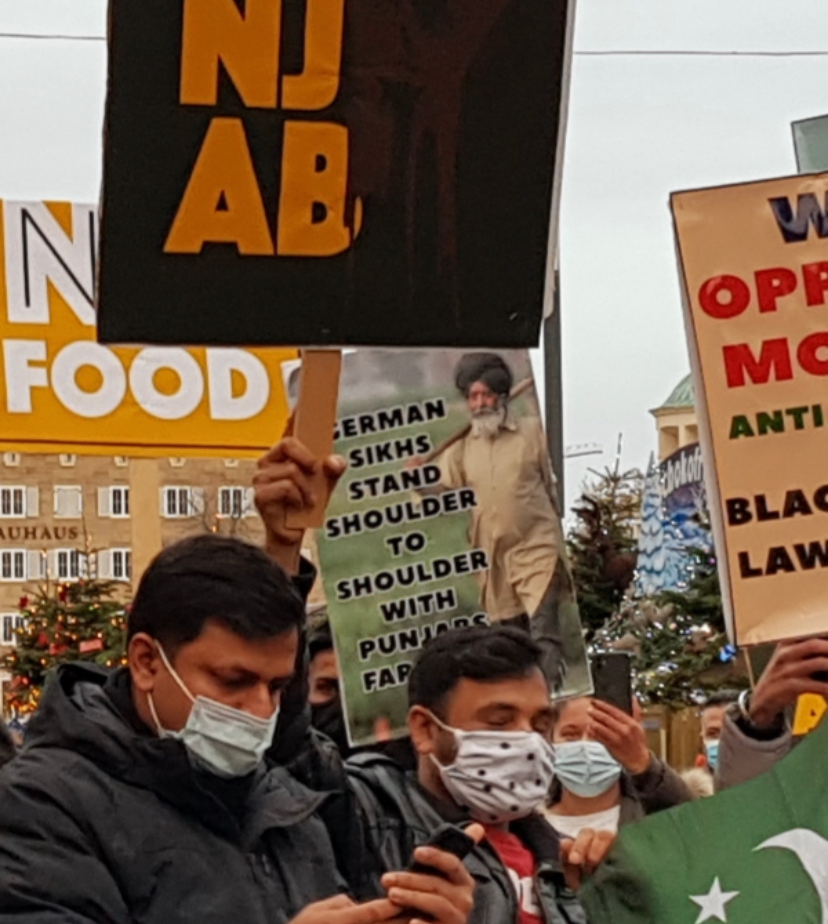
Stuttgart,
Germany
Oceania
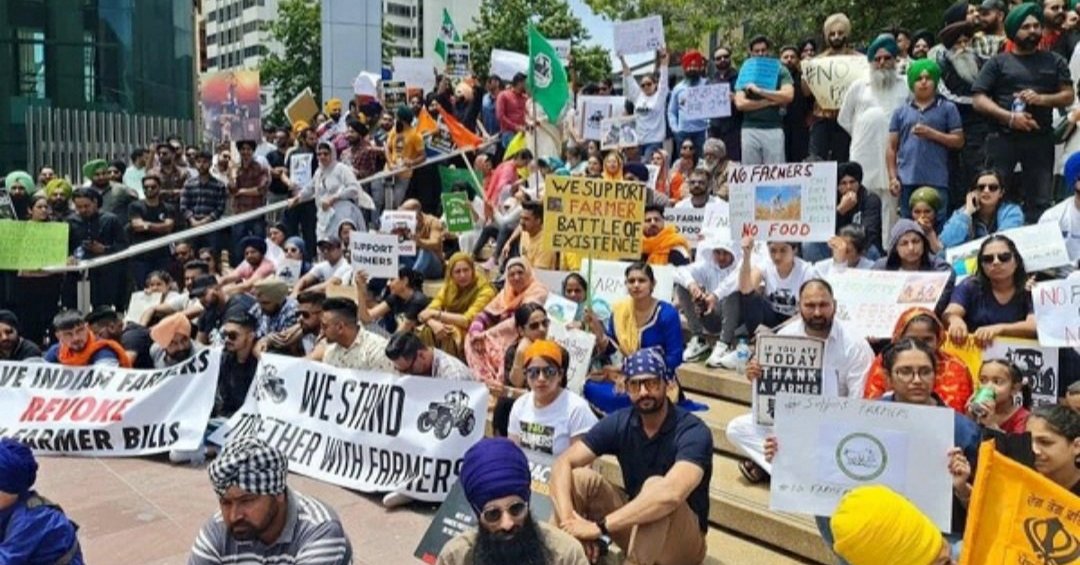
New Zealand
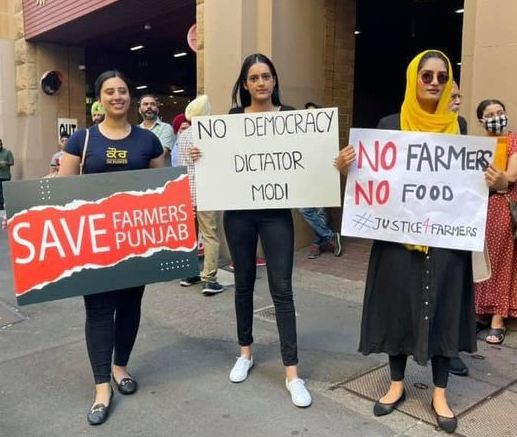
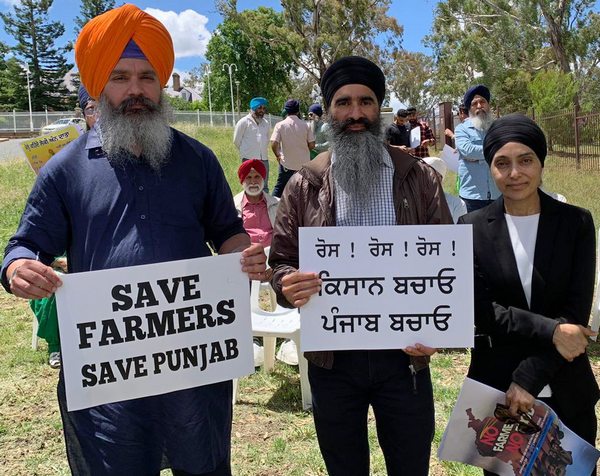
Canberra,
Australia
(Photos: TML, P. Singh, J. Singh, T.
Bhullar, H. Panfher, Dehmesh Cultural Centre, A. Sekhon, K. Kaur)
Important Anniversary
200th Anniversary of Friedrich Engels' Birth

Two hundred years of history have flowed since Friedrich Engels was born in Barmen, Germany on November 28, 1820. Despite the passage of so much time and so many events, the revolutionary actions and thought of Engels are present today as a guide to action to settle scores with the old conscience of society and permit the emergence of the modern democratic personality.
 The Manifesto
of the Communist Party, written by Engels and Karl Marx in
1848, presented communism to the world as the necessary condition to
complete the emancipation of the working class. Engels dedicated his
entire life to the advance of the working class movement, despite
relentless attacks on his person by the German, French and other states
and political personalities. Engels demonstrated in practice, as
Hardial Bains said at the meeting held on the 100th anniversary of
Engels' death in 1995: "Communism cannot be cowed down; it cannot be
afraid of pinpricks. It must attract the best minds of our era, as it
did in the past. It must present to the working class what is best in
every sphere. It must open a future for human beings and not for
angels. It must create a society that human beings want, not
perfection, not some dream world. The society to be created is that
which the working class must create for itself, a world where it no
longer faces humiliation, degradation and the crimes of the oppressors.
The working class must create a society in which humanity does not face
wars, disease, poverty and marginalization."
The Manifesto
of the Communist Party, written by Engels and Karl Marx in
1848, presented communism to the world as the necessary condition to
complete the emancipation of the working class. Engels dedicated his
entire life to the advance of the working class movement, despite
relentless attacks on his person by the German, French and other states
and political personalities. Engels demonstrated in practice, as
Hardial Bains said at the meeting held on the 100th anniversary of
Engels' death in 1995: "Communism cannot be cowed down; it cannot be
afraid of pinpricks. It must attract the best minds of our era, as it
did in the past. It must present to the working class what is best in
every sphere. It must open a future for human beings and not for
angels. It must create a society that human beings want, not
perfection, not some dream world. The society to be created is that
which the working class must create for itself, a world where it no
longer faces humiliation, degradation and the crimes of the oppressors.
The working class must create a society in which humanity does not face
wars, disease, poverty and marginalization."
Engels began his political work for communism together with Marx by settling scores with their former philosophic conscience. They did so to raise the banner of the working class within the social conditions of the day and the requirements of revolutionary practice. In settling scores with their former conscience they sought to provide themselves and the working class with a manifesto that would guide them in life, enable them to engage in actions based on analysis which would open a path for the New and contribute to the emancipation of the working class.
Engels explains the settling of accounts with their erstwhile philosophical conscience in his work Ludwig Feuerbach and the End of Classical German Philosophy. To settle accounts required among other things turning the idealist philosophy of the great German philosopher Friedrich Hegel upside down and developing in practice the philosophy of dialectical and historical materialism. Engels writes:
"Dialectical philosophy dissolves all conceptions of final, absolute truth and of absolute states of humanity corresponding to it. For it [dialectical philosophy], nothing is final, absolute, sacred. It reveals the transitory character of everything and in everything; nothing can endure before it except the uninterrupted process of becoming and of passing away, of endless ascendancy from the lower to the higher. And dialectical philosophy itself is nothing more than the mere reflection of this process in the thinking brain. It has, of course, also a conservative side; it recognizes that definite stages of knowledge and society are justified for their time and circumstances; but only so far. The conservatism of this mode of outlook is relative; its revolutionary character is absolute -- the only absolute dialectical philosophy admits. [...]
"The whole dogmatic content of the Hegelian system is declared to be absolute truth, in contradiction to his dialectical method, which dissolves all dogmatism. Thus the revolutionary side is smothered beneath the overgrowth of the conservative side. And what applies to philosophical cognition applies also to historical practice. [...]
"According to Hegel the dialectical development apparent in nature and history -- that is, the causal interconnection of the progressive movement from the lower to the higher, which asserts itself through all zigzag movements and temporary retrogression -- is only a copy [Abklatsch] of the self-movement of the concept going on from eternity, no one knows where, but at all events independently of any thinking human brain. This ideological perversion had to be done away with.
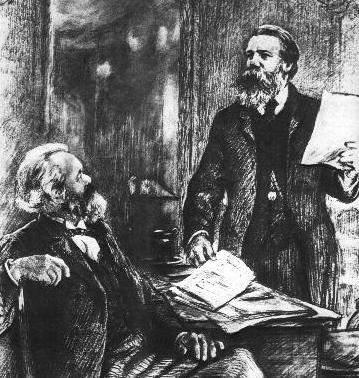 "We again took a
materialistic view of the thoughts in our heads, regarding them as
images [Abbilder] of real things instead of
regarding real things as images of this or that stage of the absolute
concept. Thus dialectics reduced itself to the science of the general
laws of motion, both of the external world and of human thought -- two
sets of laws which are identical in substance, but differ in their
expression in so far as the human mind can apply them consciously,
while in nature and also up to now for the most part in human history,
these laws assert themselves unconsciously, in the form of external
necessity, in the midst of an endless series of seeming accidents.
"We again took a
materialistic view of the thoughts in our heads, regarding them as
images [Abbilder] of real things instead of
regarding real things as images of this or that stage of the absolute
concept. Thus dialectics reduced itself to the science of the general
laws of motion, both of the external world and of human thought -- two
sets of laws which are identical in substance, but differ in their
expression in so far as the human mind can apply them consciously,
while in nature and also up to now for the most part in human history,
these laws assert themselves unconsciously, in the form of external
necessity, in the midst of an endless series of seeming accidents.
"Thereby the dialectic of concepts itself became merely the conscious reflex of the dialectical motion of the real world and thus the dialectic of Hegel was turned over; or rather, turned off its head, on which it was standing, and placed upon its feet. This materialist dialectic for years has been our best working tool and our sharpest weapon."
The obscurantist imperialist conscience asserts the notion that all things and relations are immutable. The ruling elite do everything to block the people from building the New and moving society forward to the emancipation of the working class. They declare that no alternative is possible to their program to pay the rich to overcome the recurring economic crises no matter what difficulties they cause for the people and the wars and destruction of productive forces they unleash. The oligarchy rejects the modern era that is staring it in the face, where people are born to society and possess rights by virtue of being human, because to accept it would destroy the oligarchs' class privilege and paradise on earth of colossal private wealth and power.
Dialectical philosophy as Engels asserts, and life itself proves, is a firm repudiation of the current imperialist inability to reckon with the demands of the times whereby they push bankrupt theories about end of history, end of ideology and end of science. The dialectical philosophy dissolves "all conceptions of final, absolute truth and of absolute states of humanity corresponding to it." The New must come into being and the working class is the social force that can accomplish it consciously through organized actions with analysis.
Let us honour the legacy of Friedrich Engels by redoubling our efforts to organize the institutions of the working class and strengthen its revolutionary outlook and conscience to accomplish the historic mission to open a path to its emancipation.
(To access articles individually click on the black headline.)
Website: www.cpcml.ca Email: editor@cpcml.ca
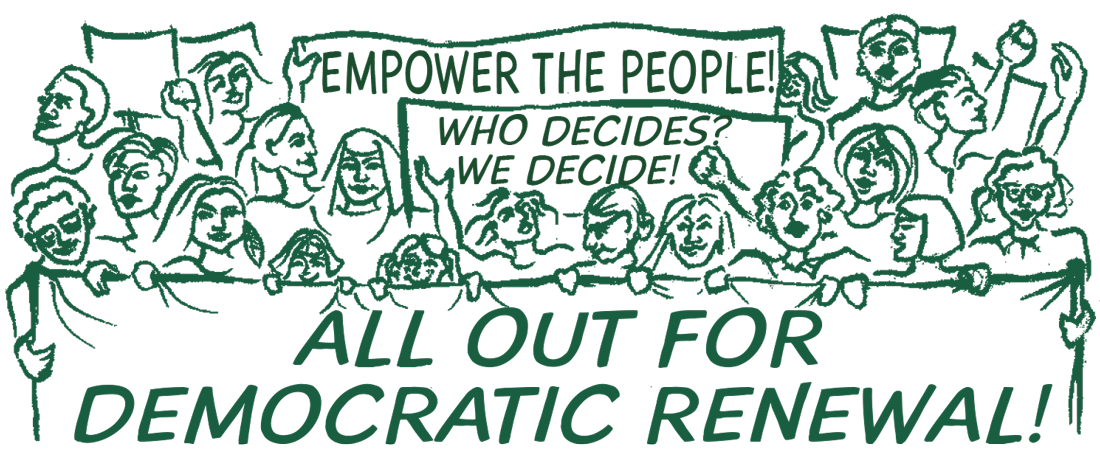
 Since coming to
power in 2015, the Trudeau Liberals have shown a propensity for
governing with contempt for Parliament and its Committees. This was
again illustrated by Bill C-19 being tabled before
the parliamentary committee entrusted with studying the issue of
pandemic elections had tabled its report. The Committee's report,
entitled "Protecting Public Health and Democracy During a Possible
Pandemic Election," was tabled on December 11 by the Committee chair,
Liberal MP Ruby Sahota, requesting a "comprehensive response," from the
government. Both the Conservative Opposition and the Bloc
Québécois voiced their opposition to this
procedure, with the Bloc Québécois filing a
dissenting opinion in which it "insist[s] on the fact that it is
unacceptable that the government tabled [Bill C-19] even before the
final committee report was tabled." The Committee heard from health
experts and representatives of particularly vulnerable sections of the
people, such as the Canadian Association for Long Term Care, the
Council of Canadians with Disabilities, as well as health officials
from several provinces.
Since coming to
power in 2015, the Trudeau Liberals have shown a propensity for
governing with contempt for Parliament and its Committees. This was
again illustrated by Bill C-19 being tabled before
the parliamentary committee entrusted with studying the issue of
pandemic elections had tabled its report. The Committee's report,
entitled "Protecting Public Health and Democracy During a Possible
Pandemic Election," was tabled on December 11 by the Committee chair,
Liberal MP Ruby Sahota, requesting a "comprehensive response," from the
government. Both the Conservative Opposition and the Bloc
Québécois voiced their opposition to this
procedure, with the Bloc Québécois filing a
dissenting opinion in which it "insist[s] on the fact that it is
unacceptable that the government tabled [Bill C-19] even before the
final committee report was tabled." The Committee heard from health
experts and representatives of particularly vulnerable sections of the
people, such as the Canadian Association for Long Term Care, the
Council of Canadians with Disabilities, as well as health officials
from several provinces.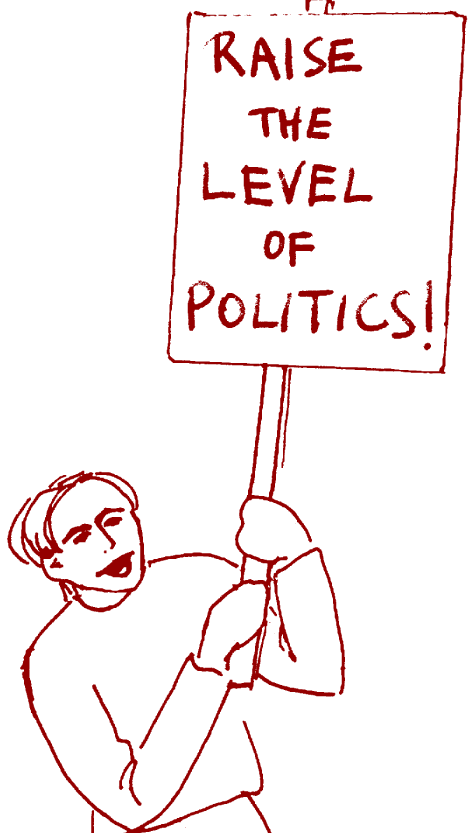 "While Bill C-19
is justified as merely addressing temporary changes due to the
pandemic, the Trudeau government's reversal of promises to change the
method of voting to make the vote more representative cannot be
ignored. Self-serving decisions made by those in positions of privilege
and power over who is more legitimate and who is more deserving to
govern have completely dispensed with any perception that the playing
field is in any way 'even' or 'fair.' That will not change with these
temporary pandemic changes to how, when and where votes can be cast.
"While Bill C-19
is justified as merely addressing temporary changes due to the
pandemic, the Trudeau government's reversal of promises to change the
method of voting to make the vote more representative cannot be
ignored. Self-serving decisions made by those in positions of privilege
and power over who is more legitimate and who is more deserving to
govern have completely dispensed with any perception that the playing
field is in any way 'even' or 'fair.' That will not change with these
temporary pandemic changes to how, when and where votes can be cast.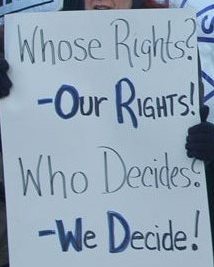 Asked what
proposals the MLPC advocates to modify the Canada Elections
Act in a manner which favours the people right away, Anna
explained:
Asked what
proposals the MLPC advocates to modify the Canada Elections
Act in a manner which favours the people right away, Anna
explained:

